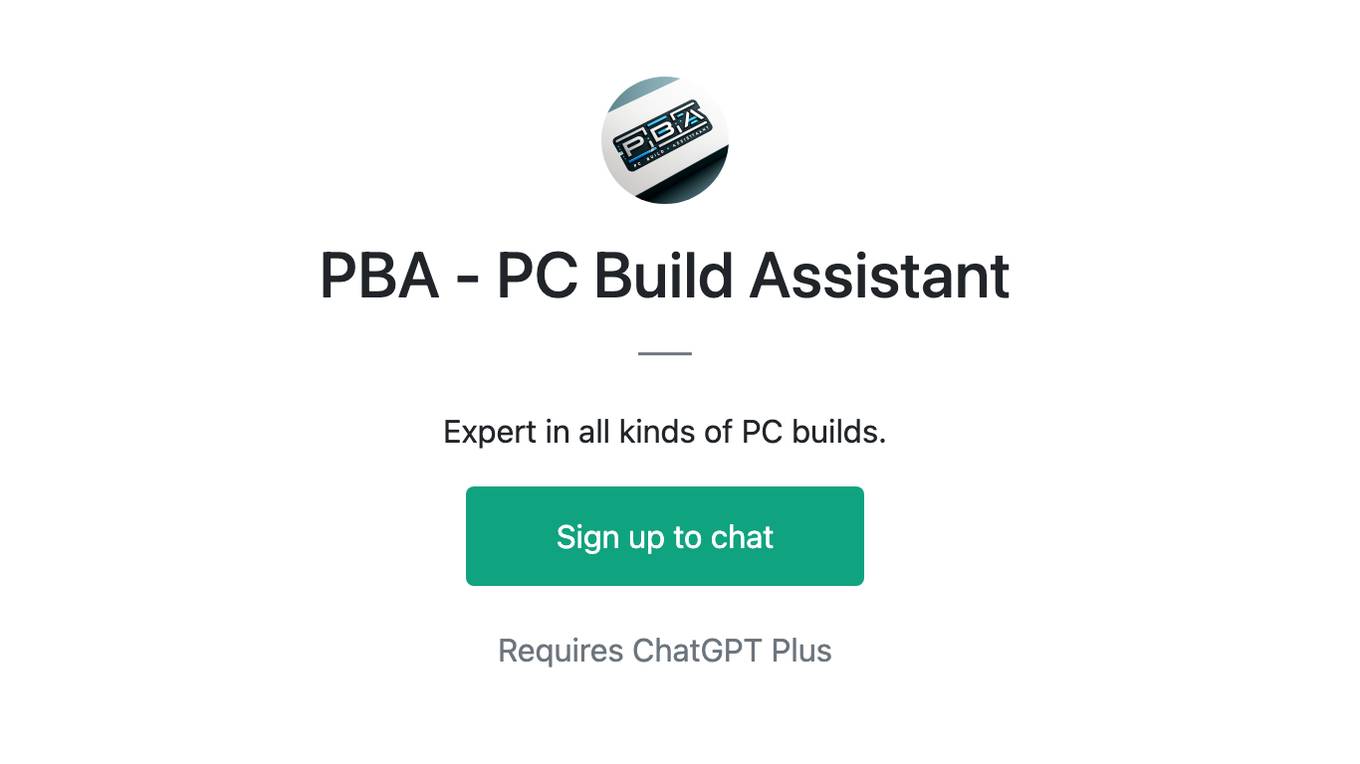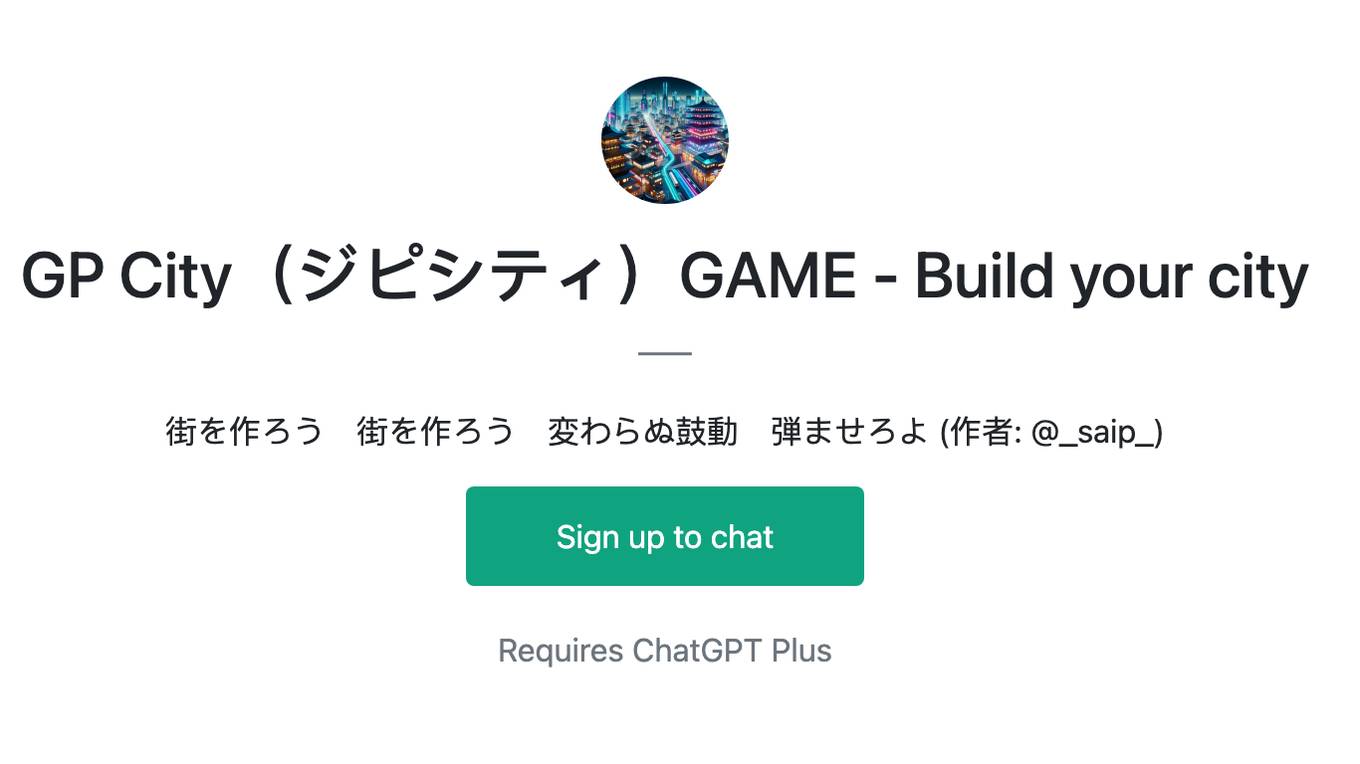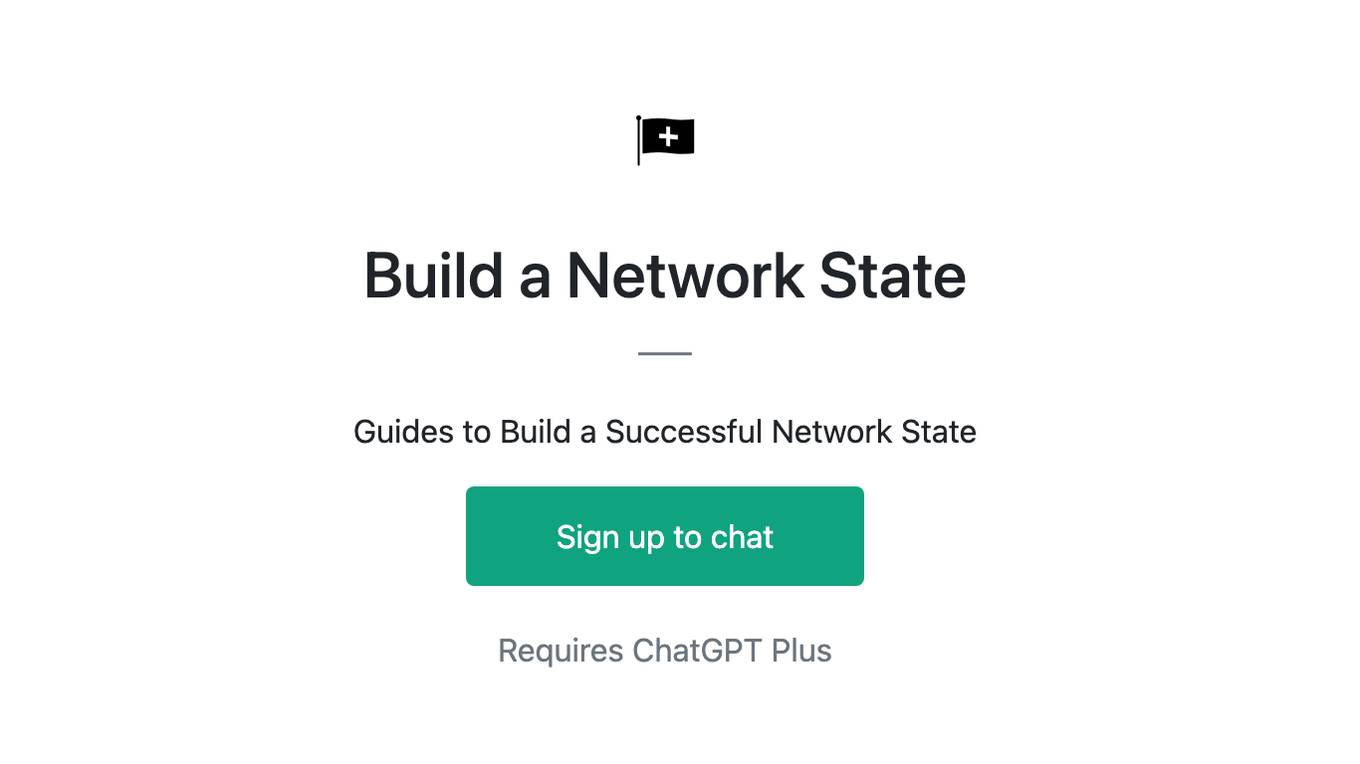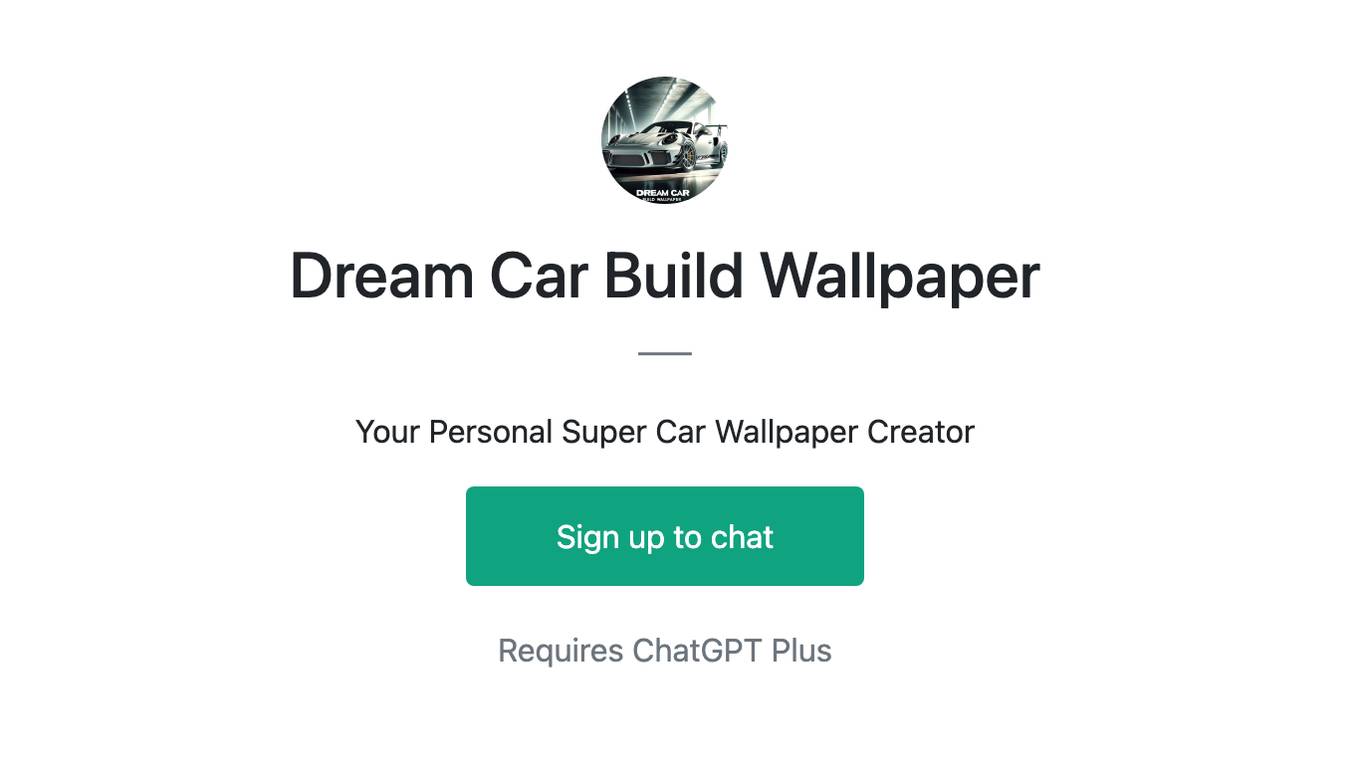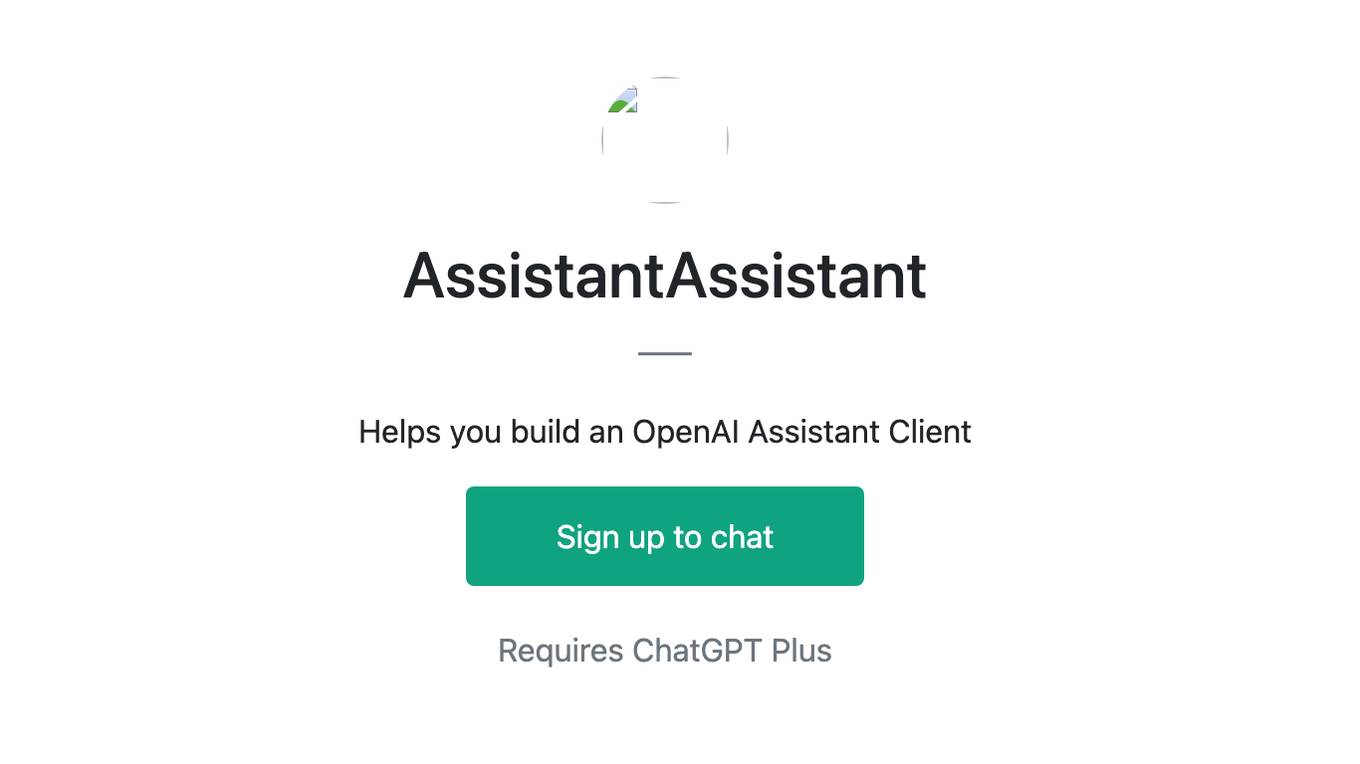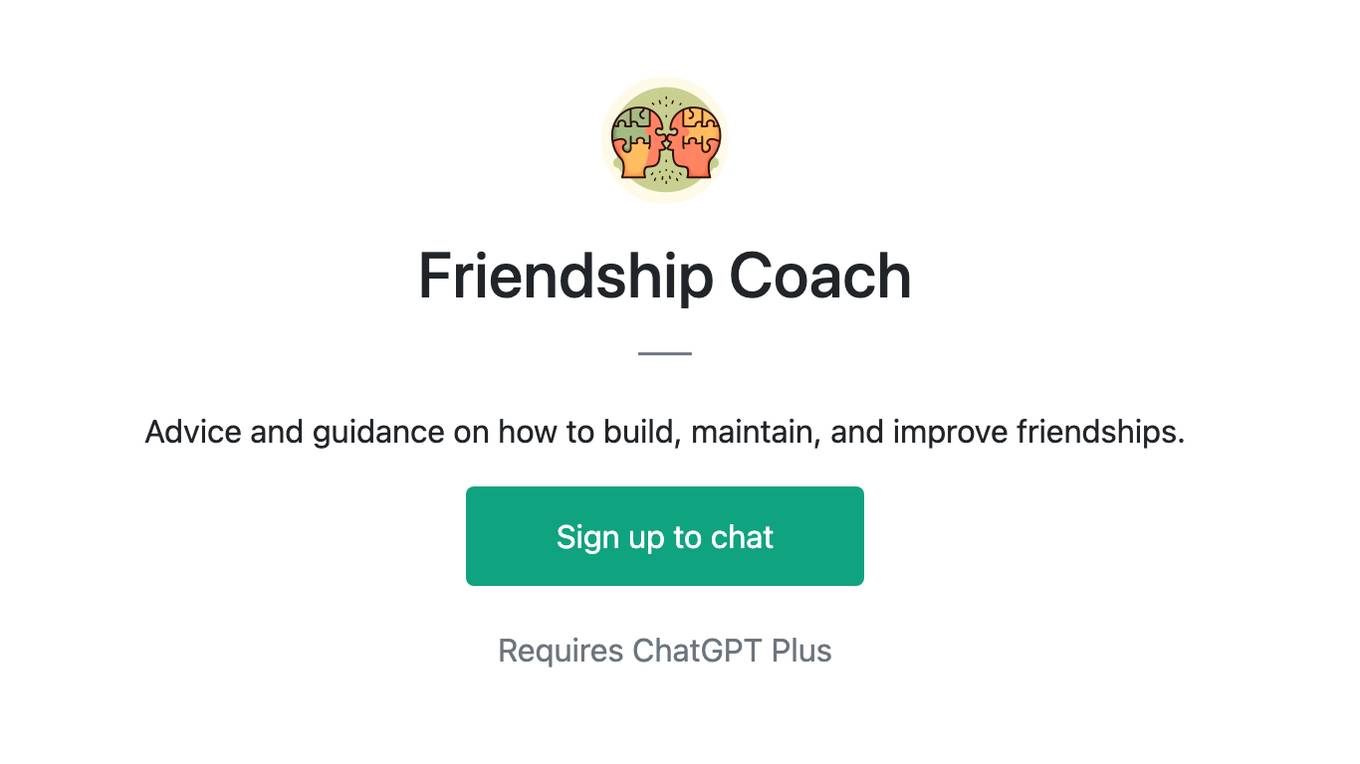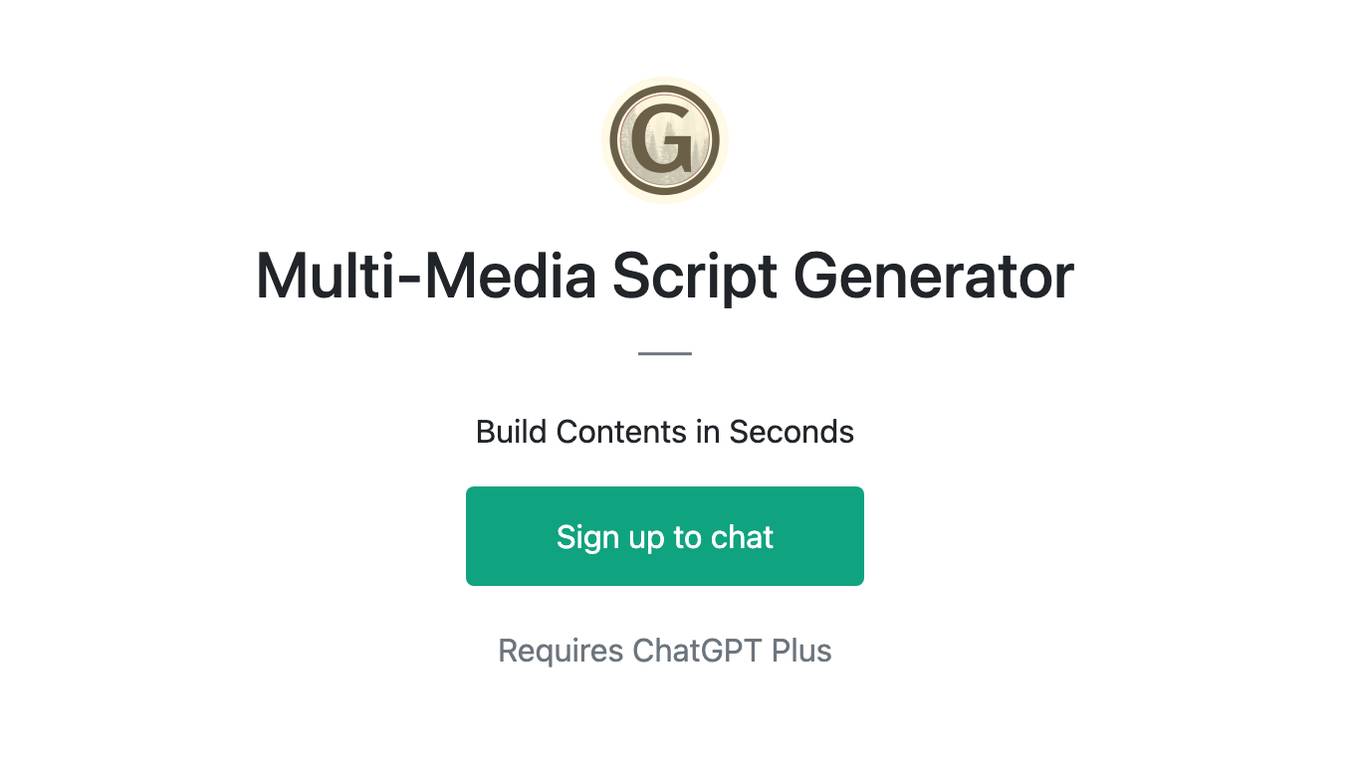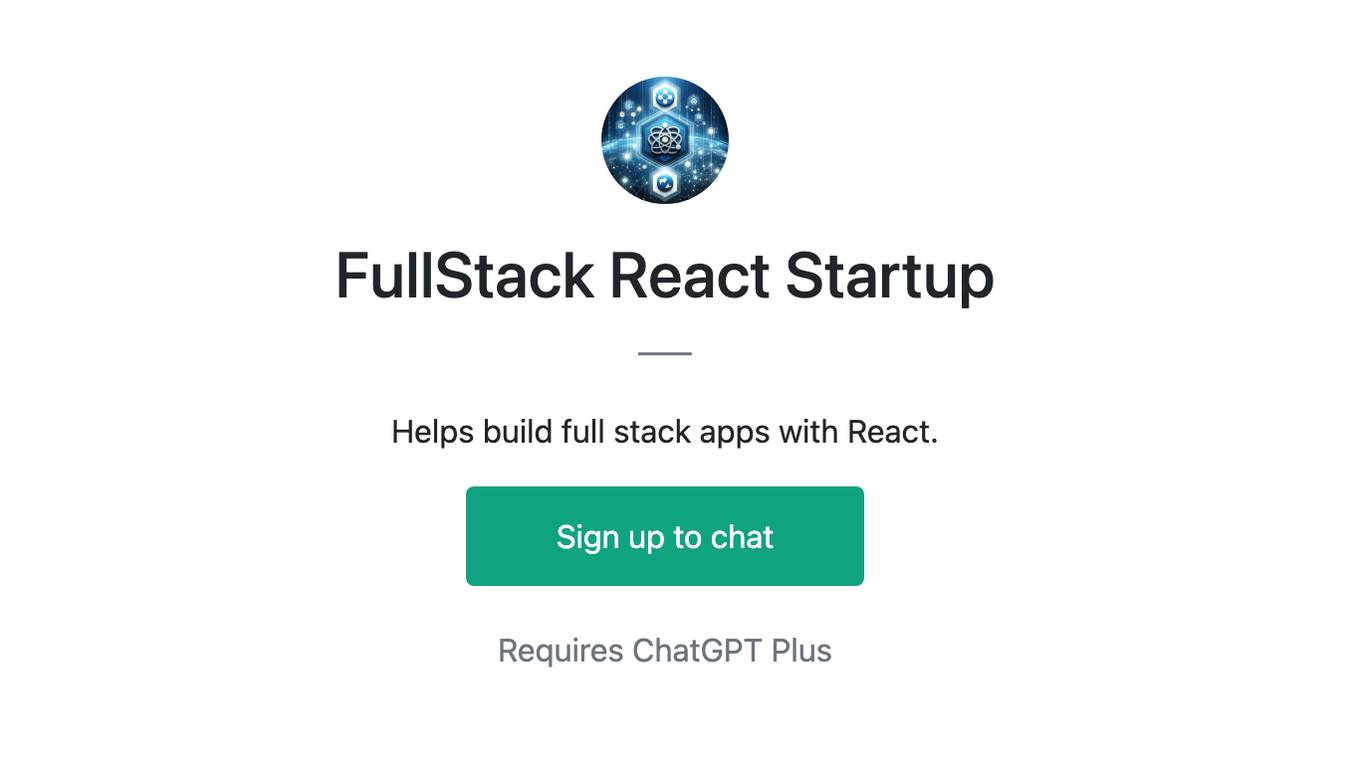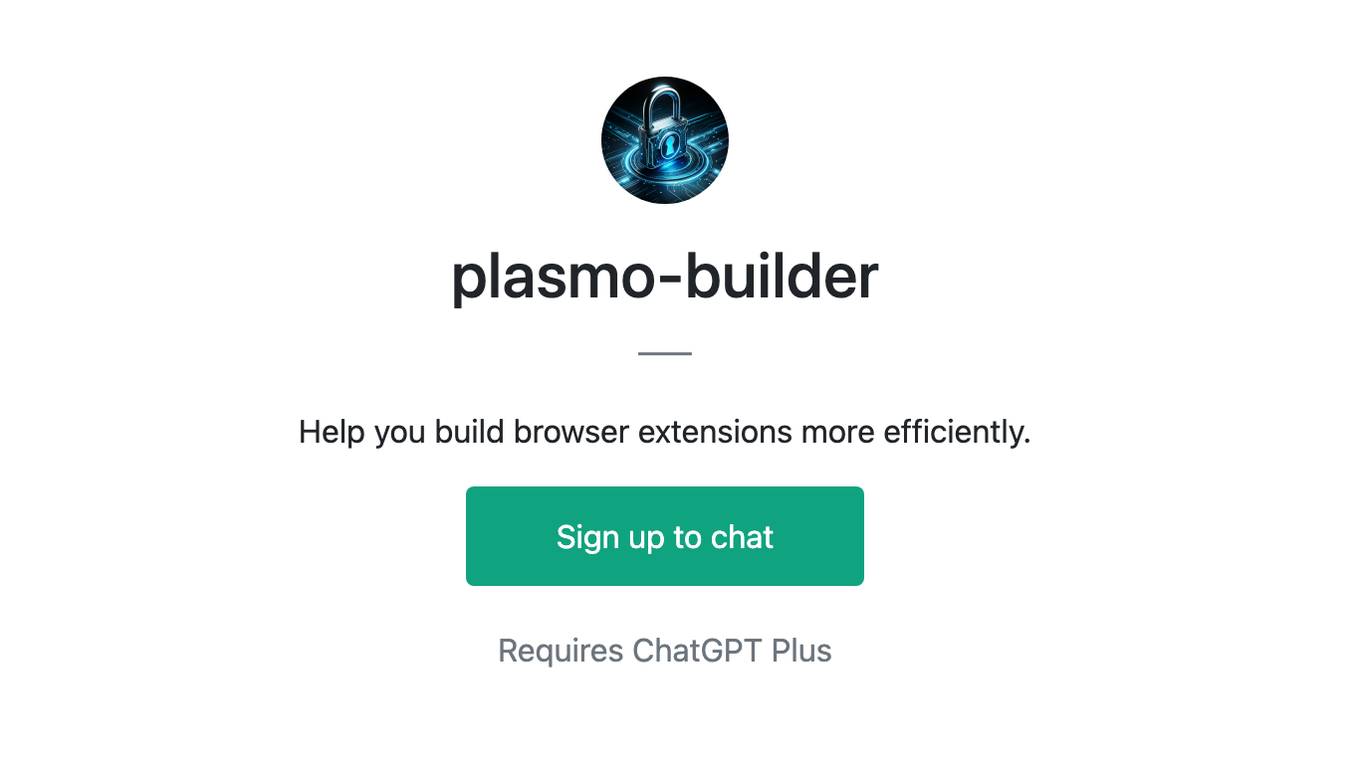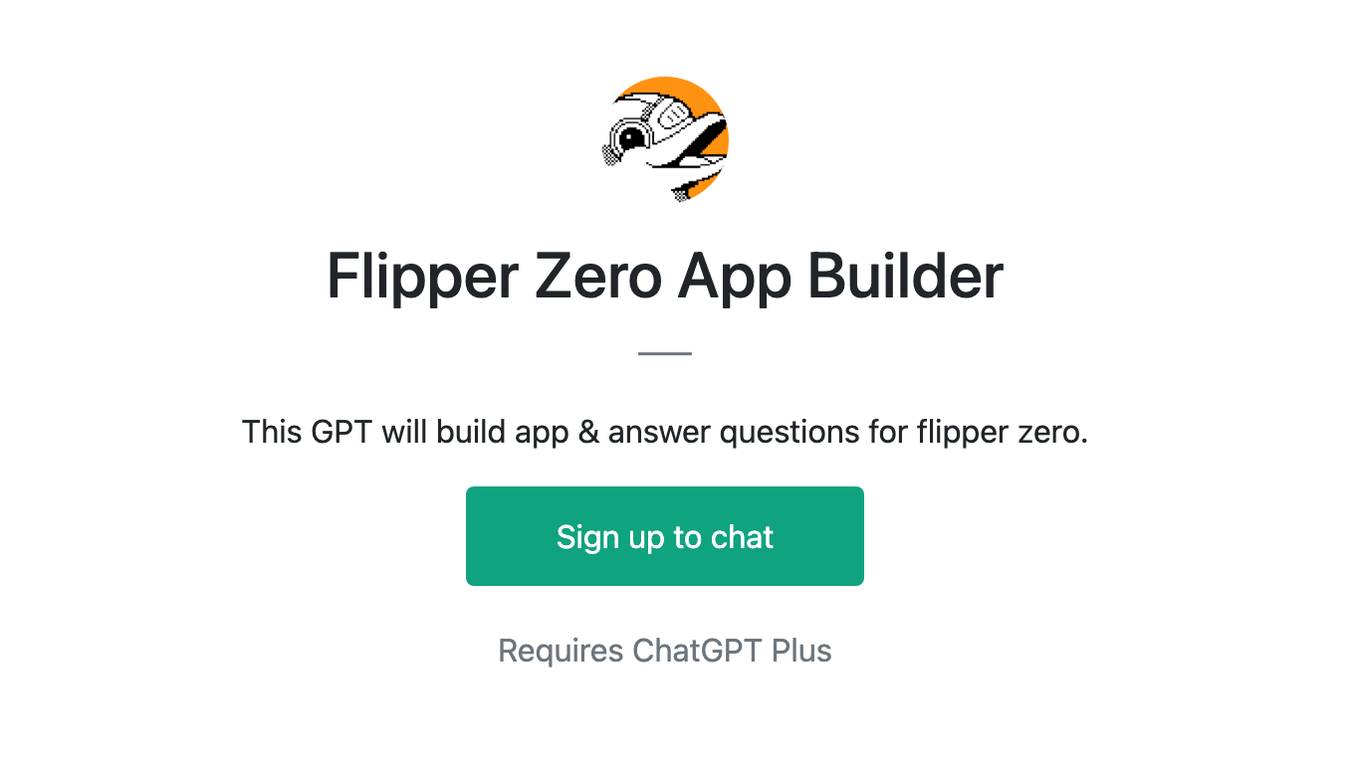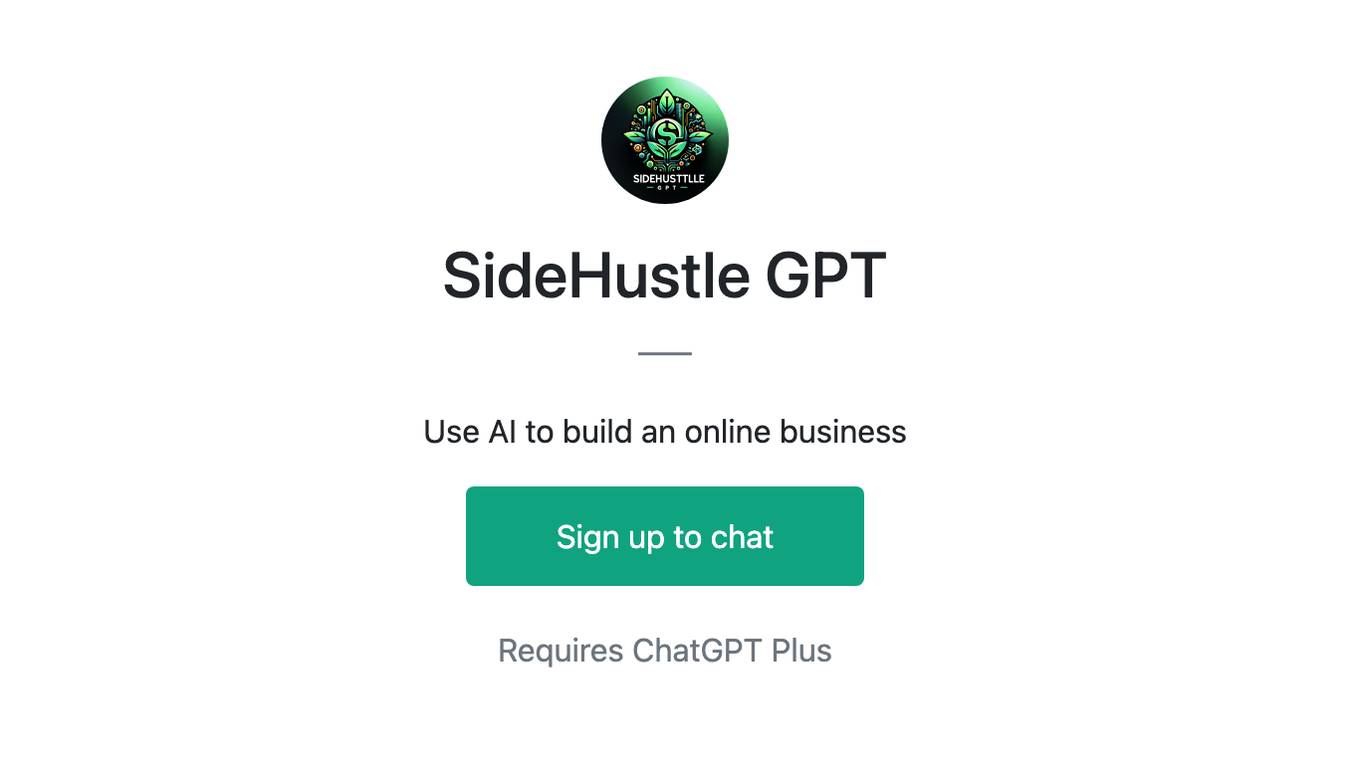Best AI tools for< Build Reusable Templates >
20 - AI tool Sites

Flair.ai
Flair.ai is an AI-powered design tool that helps businesses create stunning product photoshoots in seconds. With Flair.ai, you can drag and drop to generate product shots, stage scenes digitally, mix and match products with templates, and build reusable templates at scale. Flair.ai also offers a range of features to help you iterate on designs fast, collaborate with team members, and scale your design with API.
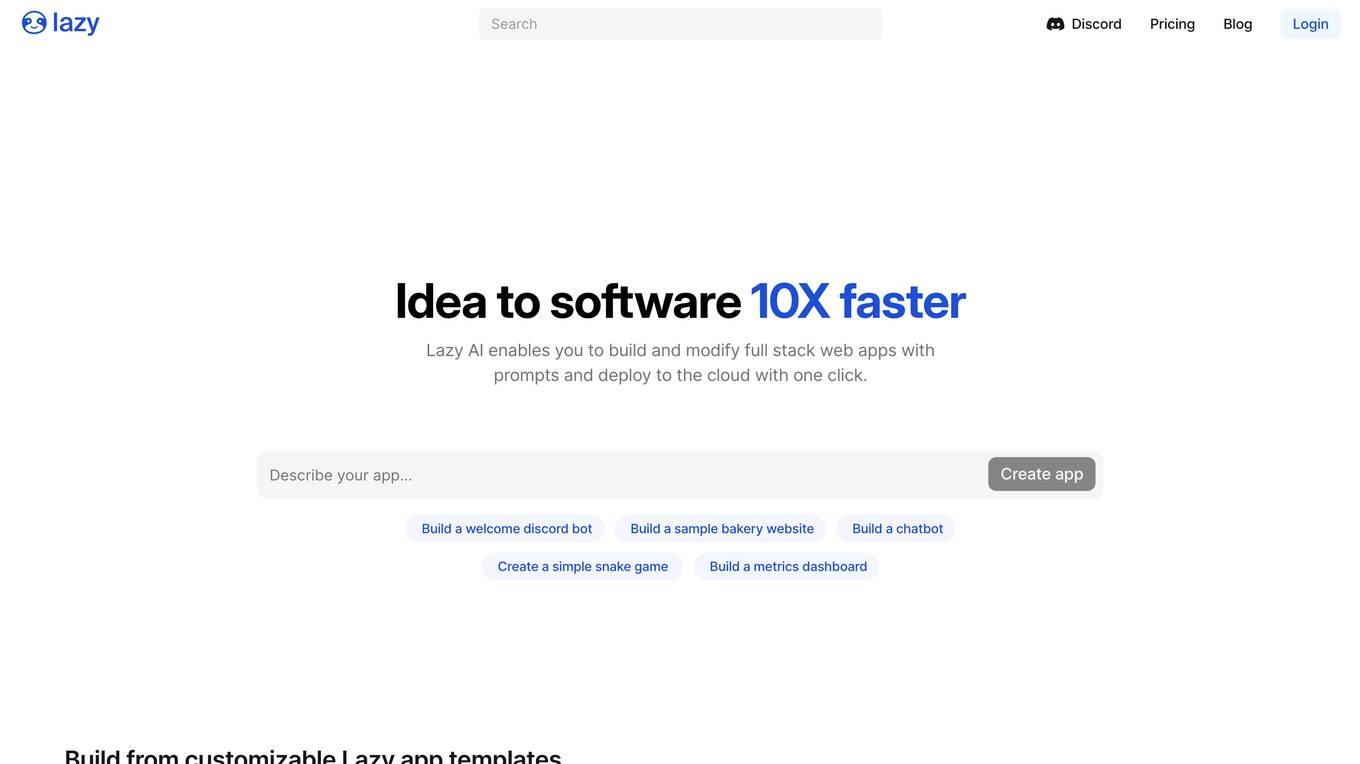
Lazy AI
Lazy AI is an AI tool that enables users to quickly build and modify web apps with prompts and deploy them to the cloud with just one click. Users can create various applications such as customer portals, API endpoints for AI text summarization, metrics dashboards, web scrapers, chatbots, and discord bots. The platform offers a wide range of template categories and tools for automation, data mining, AI agents, dashboards, reporting, and more. Users can also access reusable templates from the Lazy AI community to streamline their development process.
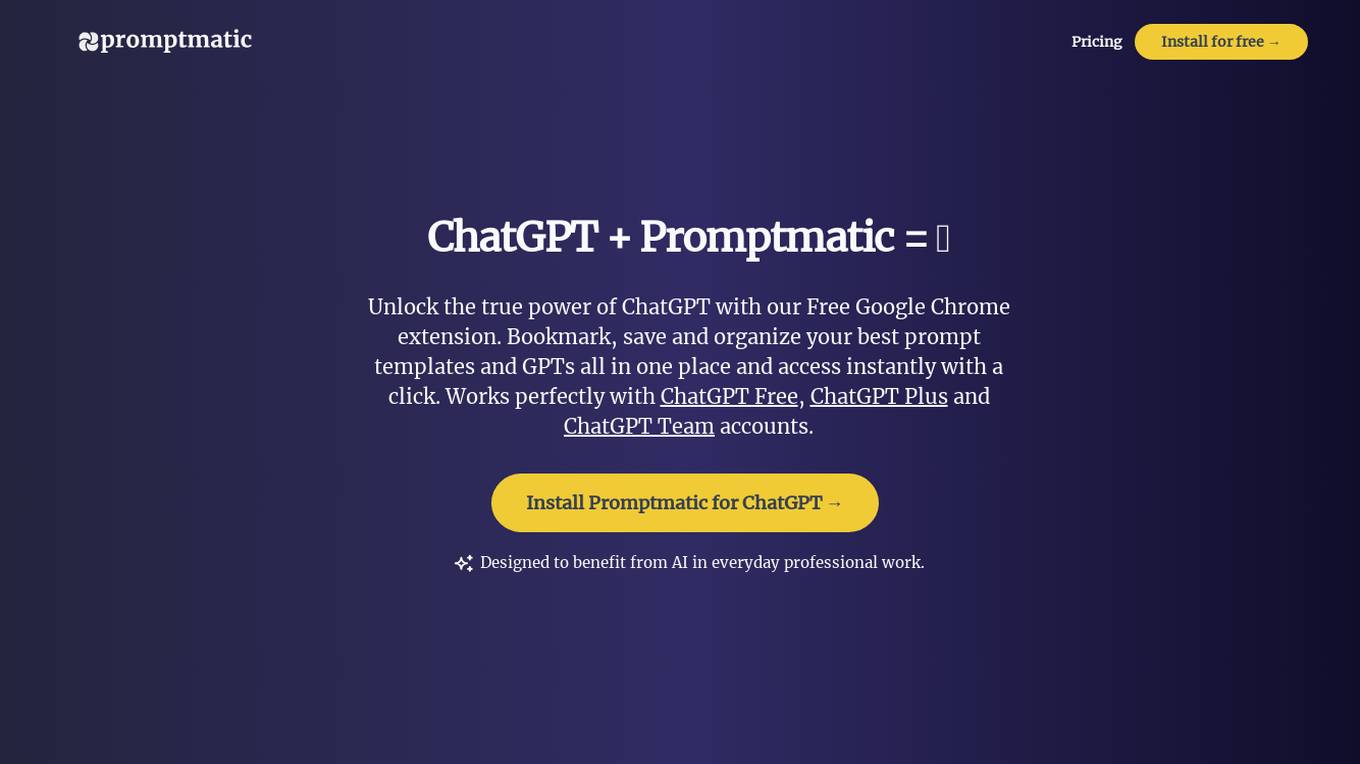
Promptmatic
Promptmatic is a free Google Chrome extension that helps you bookmark, save, and organize your best ChatGPT prompt templates and GPTs all in one place. It also includes a smart prompt editor with built-in variable editor and 200+ role, instruction, style, and tone presets. With Promptmatic, you can easily create reusable prompt templates, save and bookmark GPTs and templates in folders, and access them whenever you need with a single click right inside your ChatGPT dashboard.
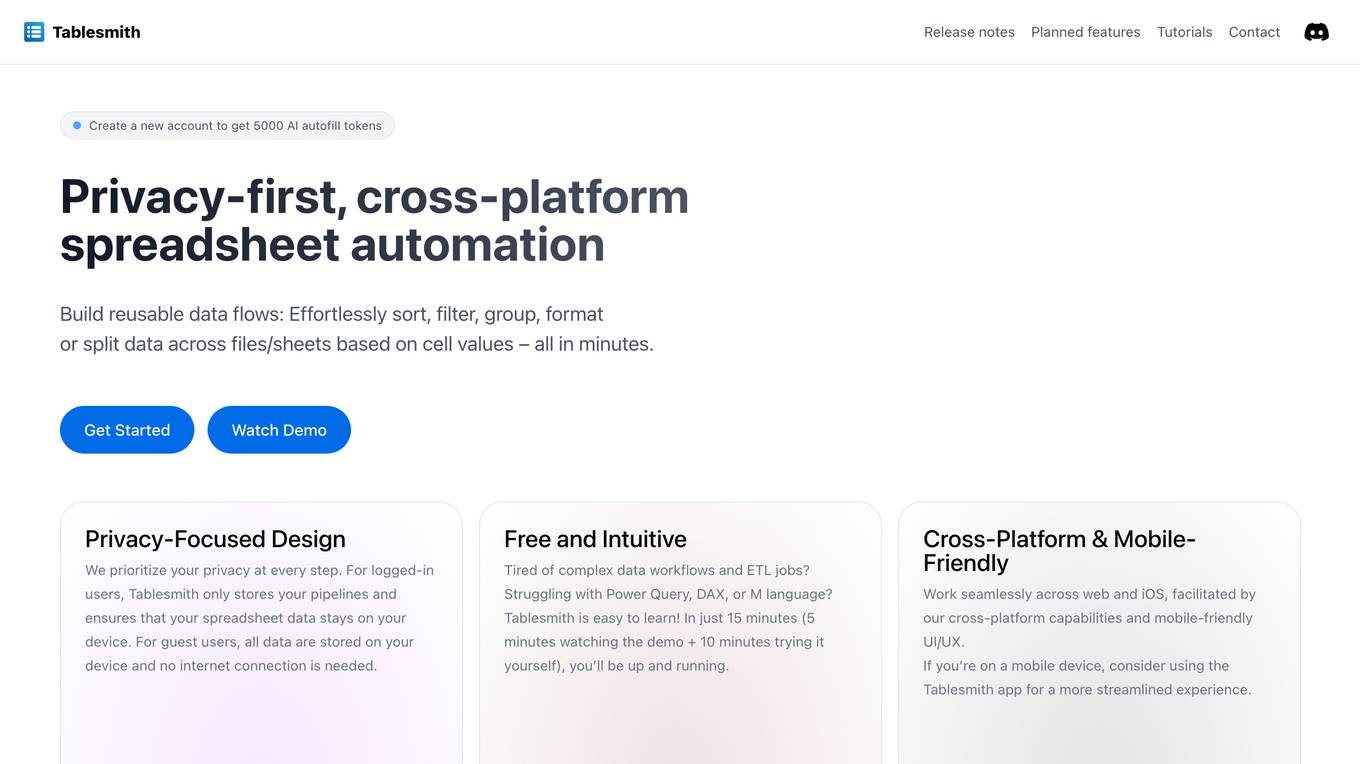
Tablesmith
Tablesmith is a free, privacy-first, and intuitive spreadsheet automation tool that allows users to build reusable data flows, effortlessly sort, filter, group, format, or split data across files/sheets based on cell values. It is designed to be easy to learn and use, with a focus on privacy and cross-platform compatibility. Tablesmith also offers an AI autofill feature that suggests and fills in information based on the user's prompt.
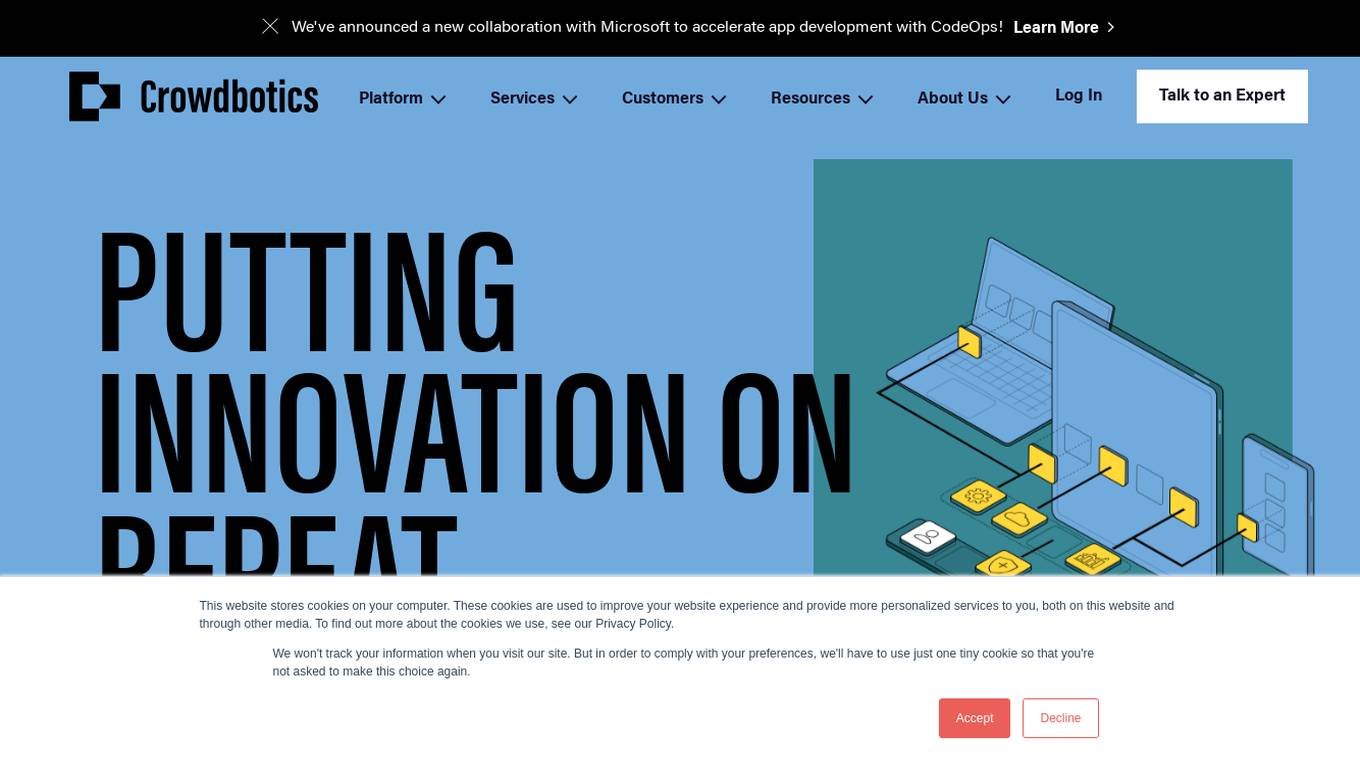
Crowdbotics
Crowdbotics is an AI-powered platform that leverages systematic code reuse to help users build applications faster and with reduced risk. The platform uses AI to improve the process of defining app requirements, link reusable code modules with app requirements, assemble code modules into a nearly complete app, and develop differentiating features. Crowdbotics aims to transform the software development lifecycle by enabling successful code reuse through its CodeOps approach.
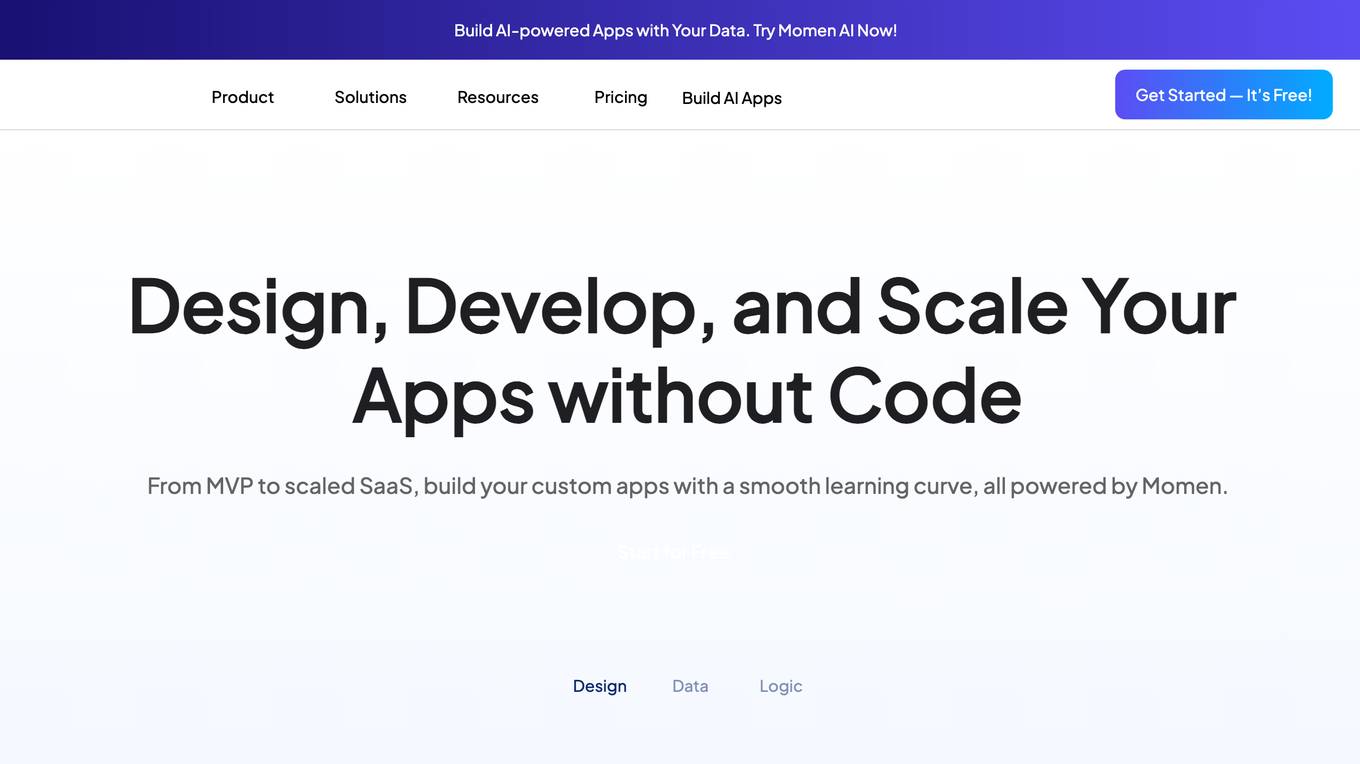
Momen
Momen is a platform that allows users to build web applications without the need for coding. From designing to developing and scaling apps, Momen offers a smooth learning curve for users to create custom apps. The platform provides features such as dynamic canvas, live preview, interactive animations, and reusable components. With Momen, users can clarify user journeys, unleash their creativity, and build feature-rich apps with ease. The platform also ensures predictable costs, assured scalability, and advanced collaboration workflows for million-user projects. Momen AI 2.0 enables users to build AI agents. Additionally, Momen offers SEO controls, AI app development, exclusive programs for education, tailored solutions for content creators, and various resources and support options.
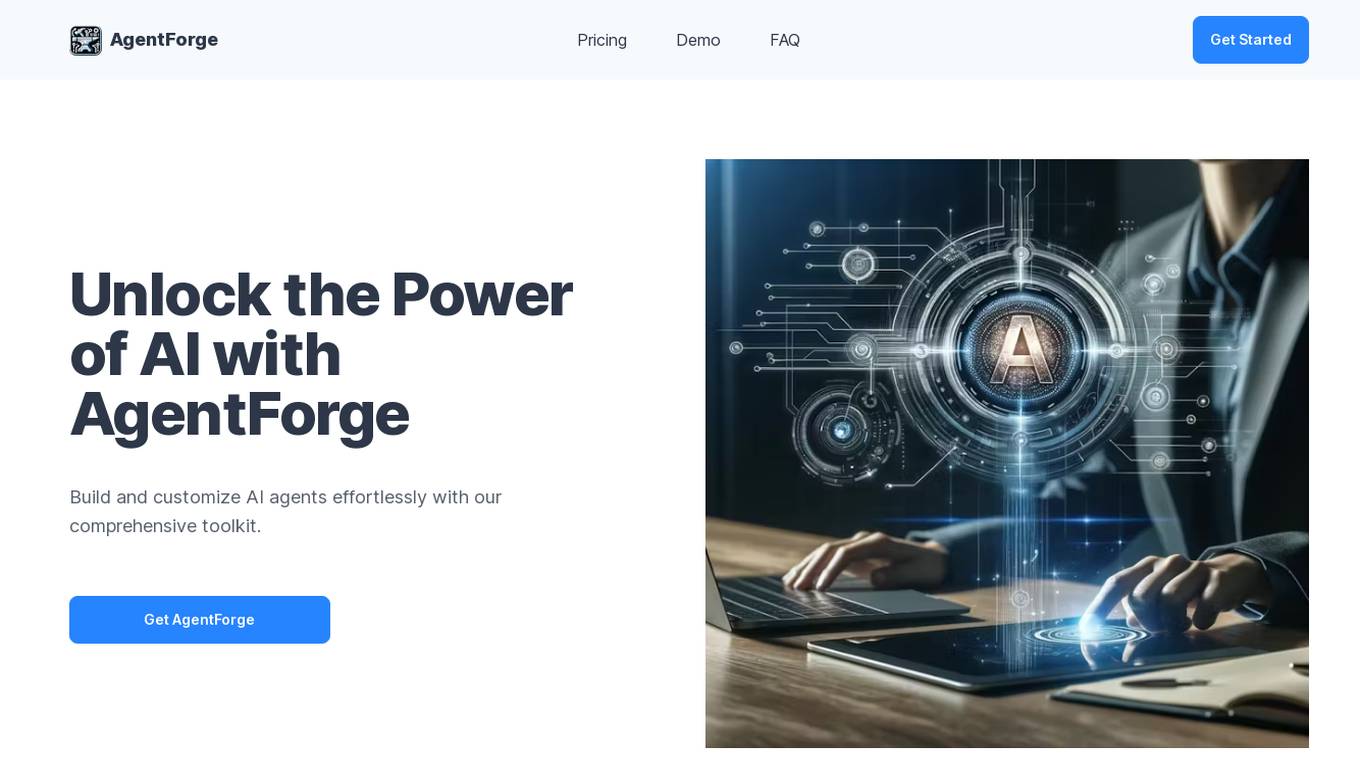
AgentForge
AgentForge is a powerful AI application that simplifies the creation and customization of AI agents. It offers a comprehensive toolkit with pre-built agents, customizable graphs, and reusable UI components. The platform allows users to effortlessly build and customize AI agents, reducing the complexity and cost associated with developing AI solutions from scratch. With seamless integration with popular AI tools and platforms, AgentForge empowers businesses to unlock the full potential of AI technology.

Leapwork
Leapwork is an AI-powered test automation platform that enables users to build, manage, maintain, and analyze complex data-driven testing across various applications, including AI apps. It offers a democratized testing approach with an intuitive visual interface, composable architecture, and generative AI capabilities. Leapwork supports testing of diverse application types, web, mobile, desktop applications, and APIs. It allows for scalable testing with reusable test flows that adapt to changes in the application under test. Leapwork can be deployed on the cloud or on-premises, providing full control to the users.
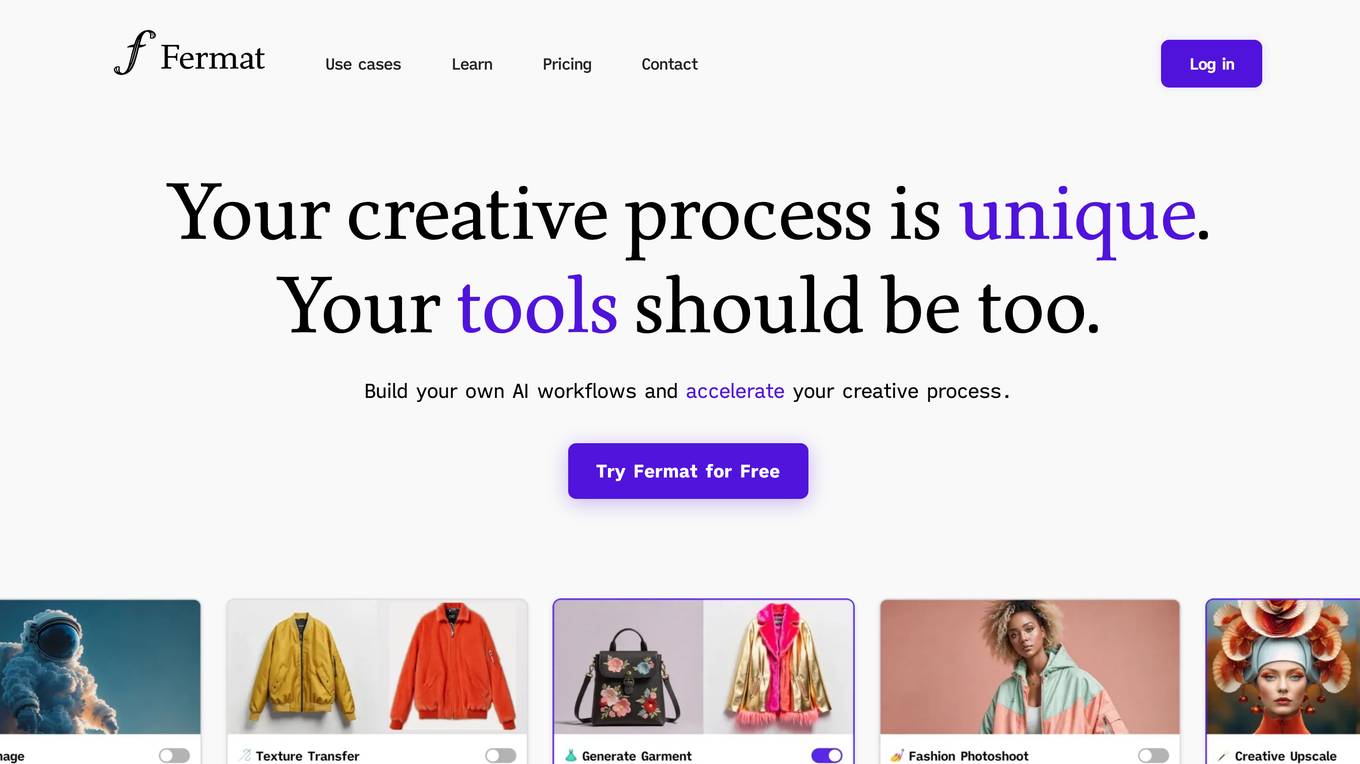
Fermat
Fermat is an AI toolmaker that allows users to build their own AI workflows and accelerate their creative process. It is trusted by professionals in fashion design, product design, interior design, and brainstorming. Fermat's unique features include the ability to blend AI models into tools that fit the way users work, embed processes in reusable tools, keep teams on the same page, and embed users' own style to get coherent results. With Fermat, users can visualize their sketches, change colors and materials, create photo shoots, turn images into vectors, and more. Fermat offers a free Starter plan for individuals and a Pro plan for teams and professionals.
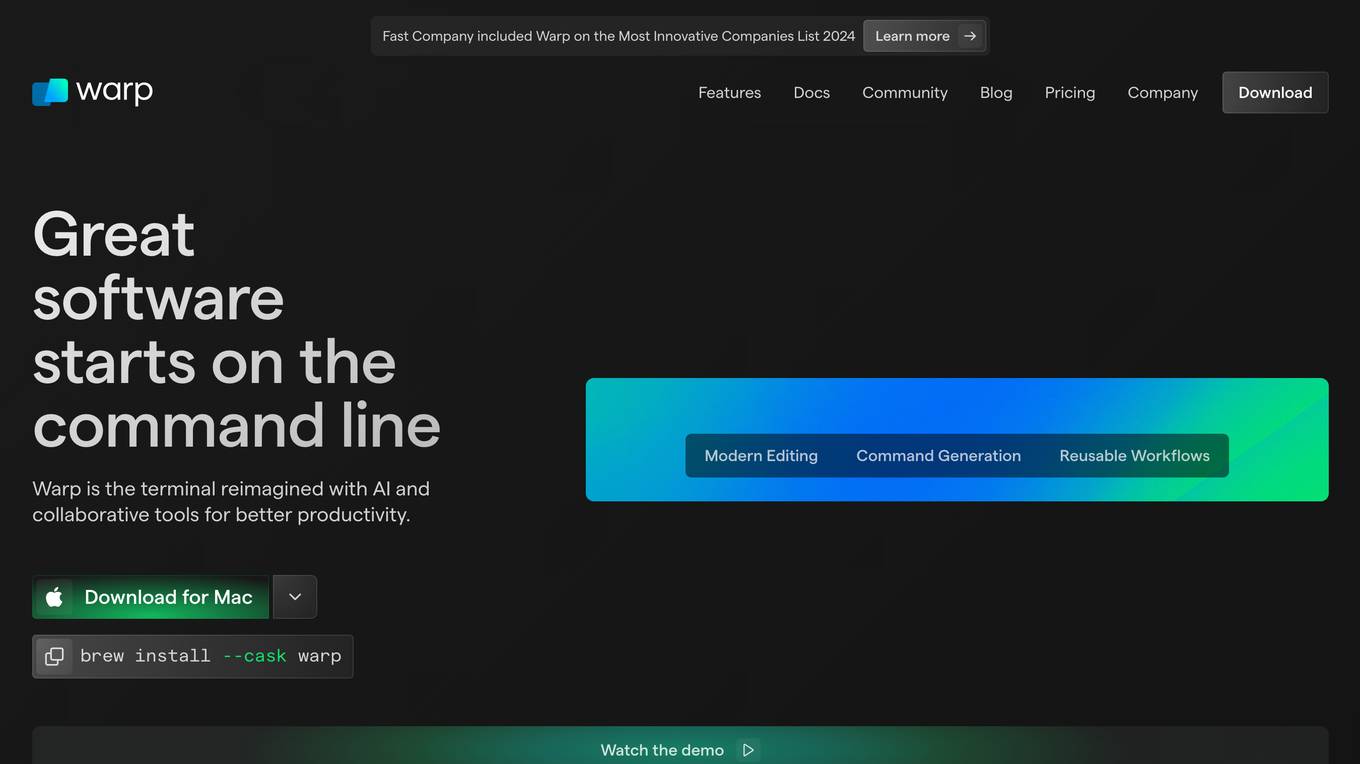
Warp
Warp is a terminal reimagined with AI and collaborative tools for better productivity. It is built with Rust for speed and has an intuitive interface. Warp includes features such as modern editing, command generation, reusable workflows, and Warp Drive. Warp AI allows users to ask questions about programming and get answers, recall commands, and debug errors. Warp Drive helps users organize hard-to-remember commands and share them with their team. Warp is a private and secure application that is trusted by hundreds of thousands of professional developers.
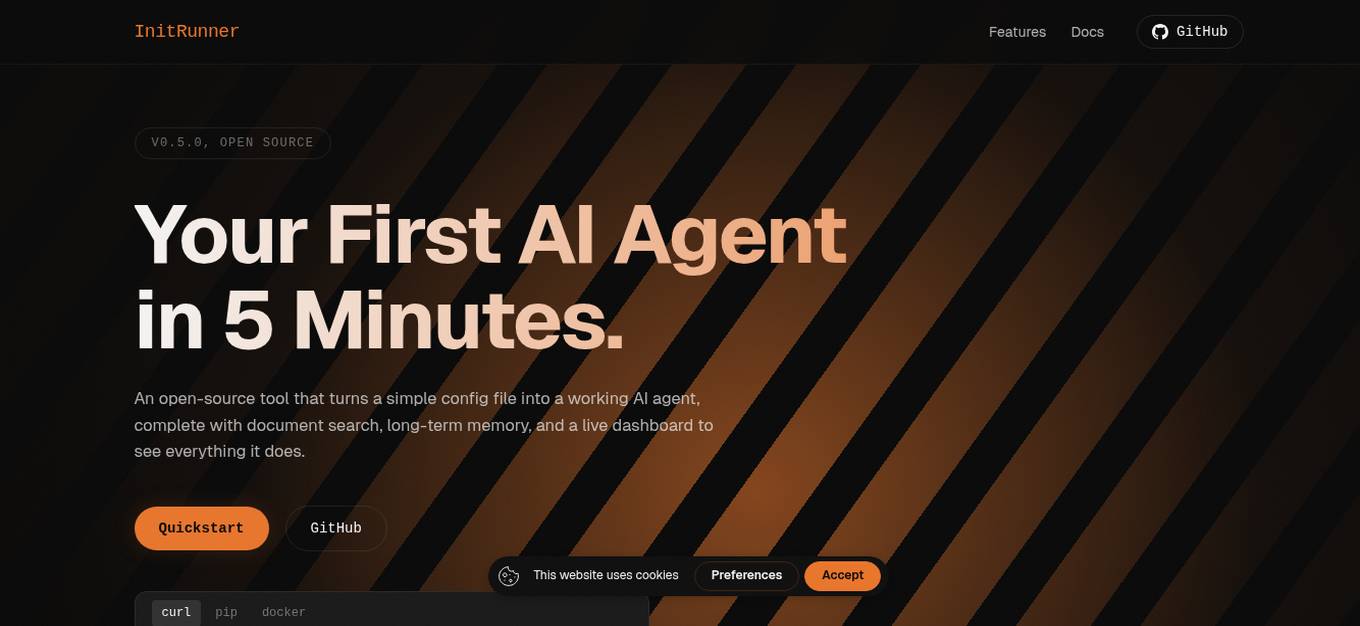
InitRunner
InitRunner is an open-source AI tool that allows users to create AI agents quickly by converting a simple config file into a functional AI agent. It offers features such as document search, long-term memory, and a live dashboard. Users can define agent roles, tools, and behaviors in YAML format without the need to learn a specific framework. The tool provides full auditability with every decision logged in an immutable SQLite log. It enables users to swap providers easily, schedule tasks, and integrate custom tools. InitRunner also supports autonomous planning, execution, and adaptation of multi-step tasks. The platform includes built-in capabilities like RAG, memory, reusable skills, and an OpenAI-compatible API server, all configurable in YAML without external services required.
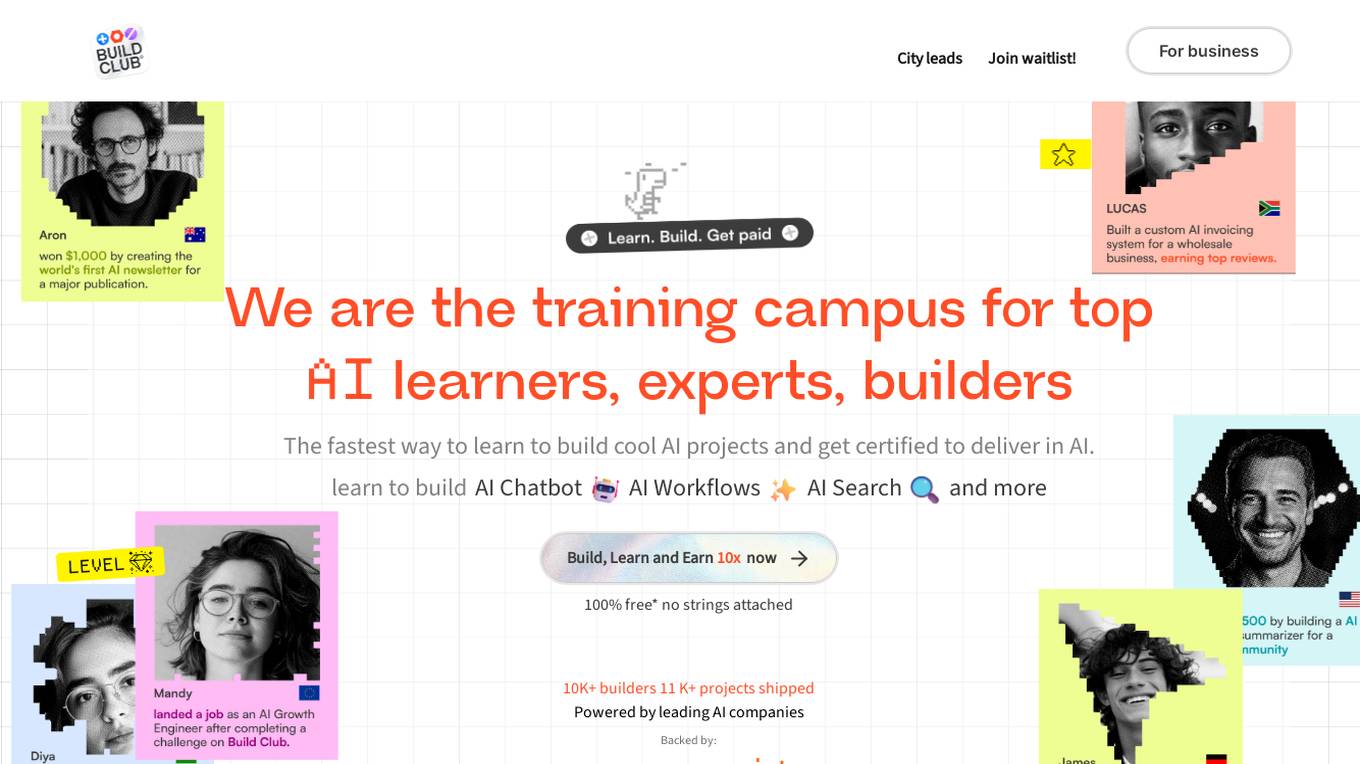
Build Club
Build Club is a leading training campus for AI learners, experts, and builders. It offers a platform where individuals can upskill into AI careers, get certified by top AI companies, learn the latest AI tools, and earn money by solving real problems. The community at Build Club consists of AI learners, engineers, consultants, and founders who collaborate on cutting-edge AI projects. The platform provides challenges, support, and resources to help individuals build AI projects and advance their skills in the field.

Unified DevOps platform to build AI applications
This is a unified DevOps platform to build AI applications. It provides a comprehensive set of tools and services to help developers build, deploy, and manage AI applications. The platform includes a variety of features such as a code editor, a debugger, a profiler, and a deployment manager. It also provides access to a variety of AI services, such as natural language processing, machine learning, and computer vision.
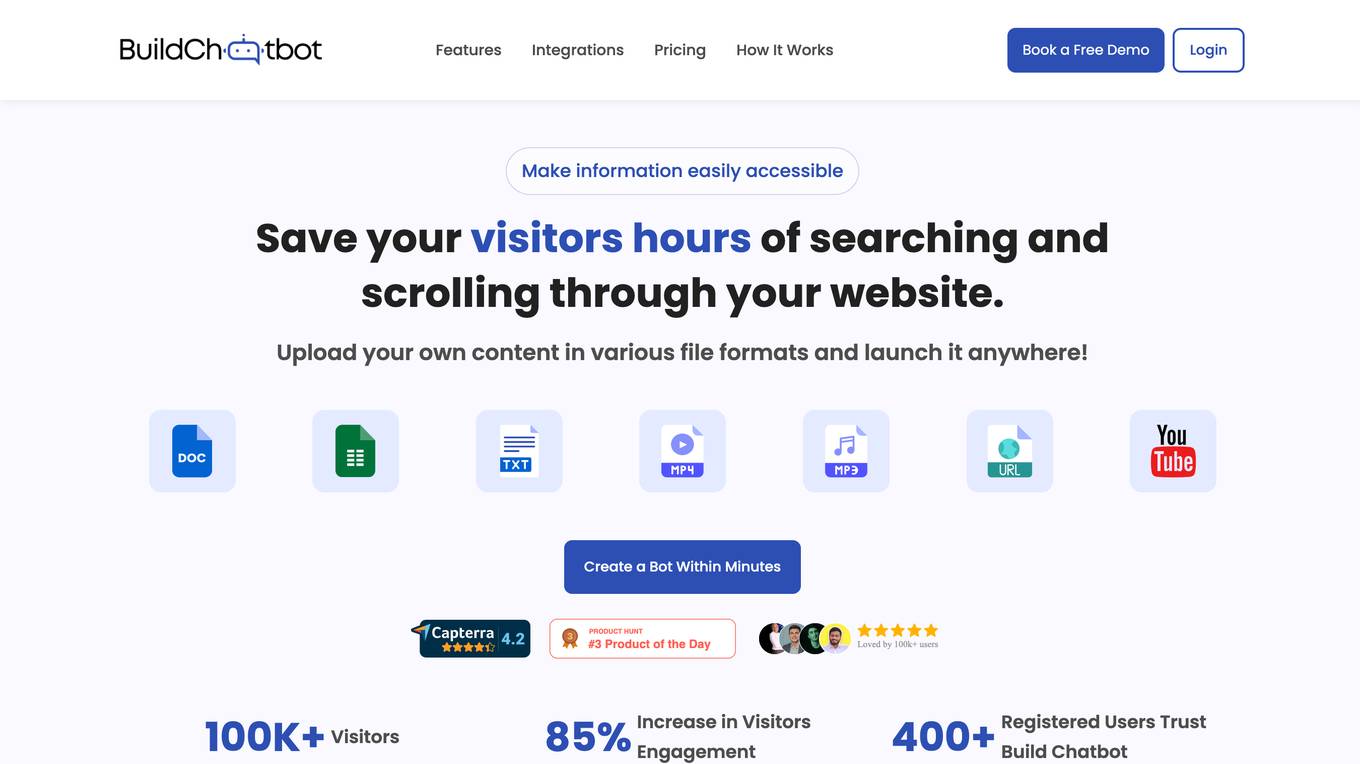
Build Chatbot
Build Chatbot is a no-code chatbot builder designed to simplify the process of creating chatbots. It enables users to build their chatbot without any coding knowledge, auto-train it with personalized content, and get the chatbot ready with an engaging UI. The platform offers various features to enhance user engagement, provide personalized responses, and streamline communication with website visitors. Build Chatbot aims to save time for both businesses and customers by making information easily accessible and transforming visitors into satisfied customers.
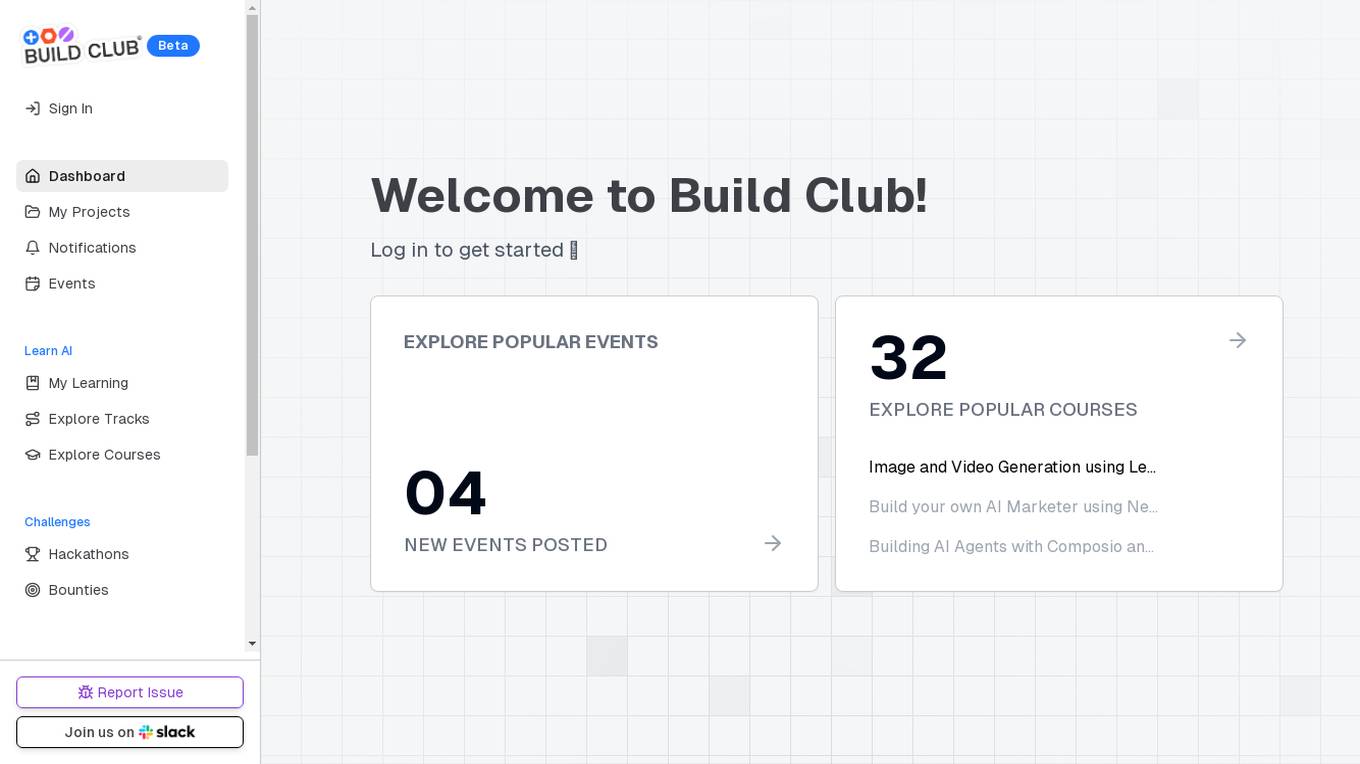
Build Club
Build Club is an AI tool designed to help individuals learn and explore various aspects of artificial intelligence. The platform offers a wide range of courses, challenges, hackathons, and community projects to enhance users' AI skills. Users can build AI models for tasks like image and video generation, AI marketing, and creating AI agents. Build Club aims to create a collaborative learning environment for AI enthusiasts to grow their knowledge and skills in the field of artificial intelligence.
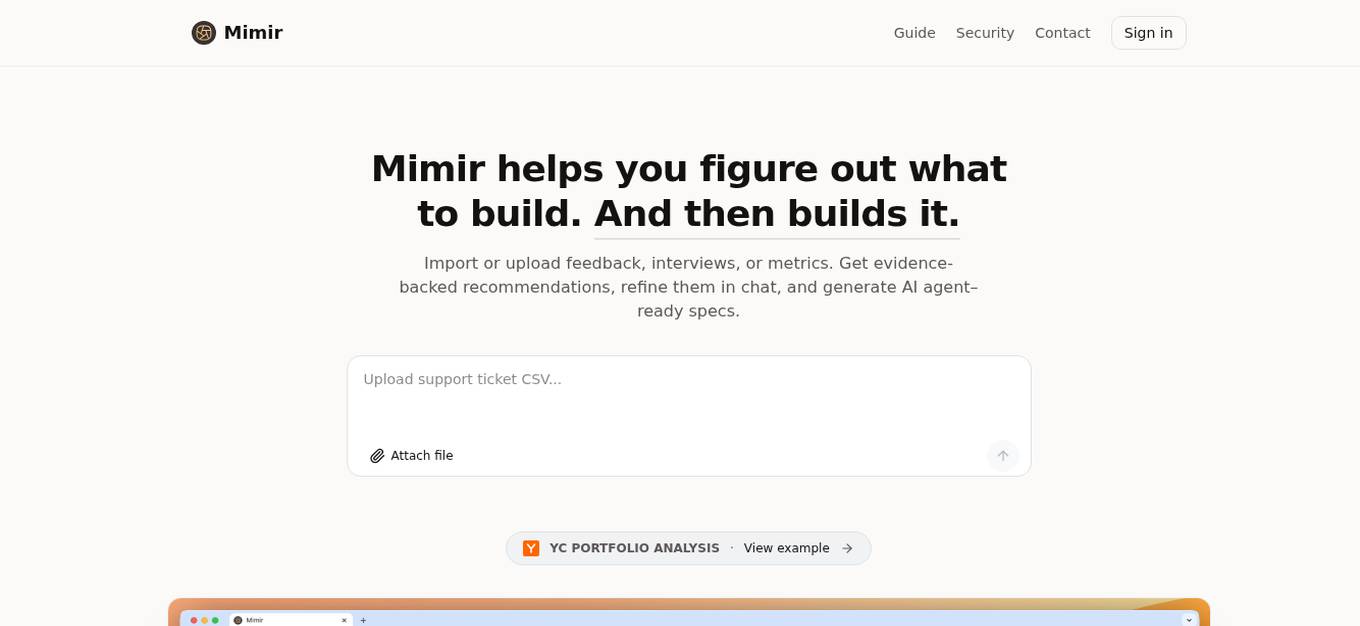
Mimir
Mimir is an AI-native product management tool that helps users figure out what to build next by importing or uploading feedback, interviews, or metrics. It provides evidence-backed recommendations, refines them in chat, and generates AI agent-ready specs. Mimir stands out by creating GitHub issues from recommendations with complete specs and implementation tasks, enabling users to ship features in hours. The tool extracts structured insights, clusters them into themes, and generates prioritized recommendations based on product management best practices. Mimir learns from every interaction, aligning recommendations with the user's business context over time.
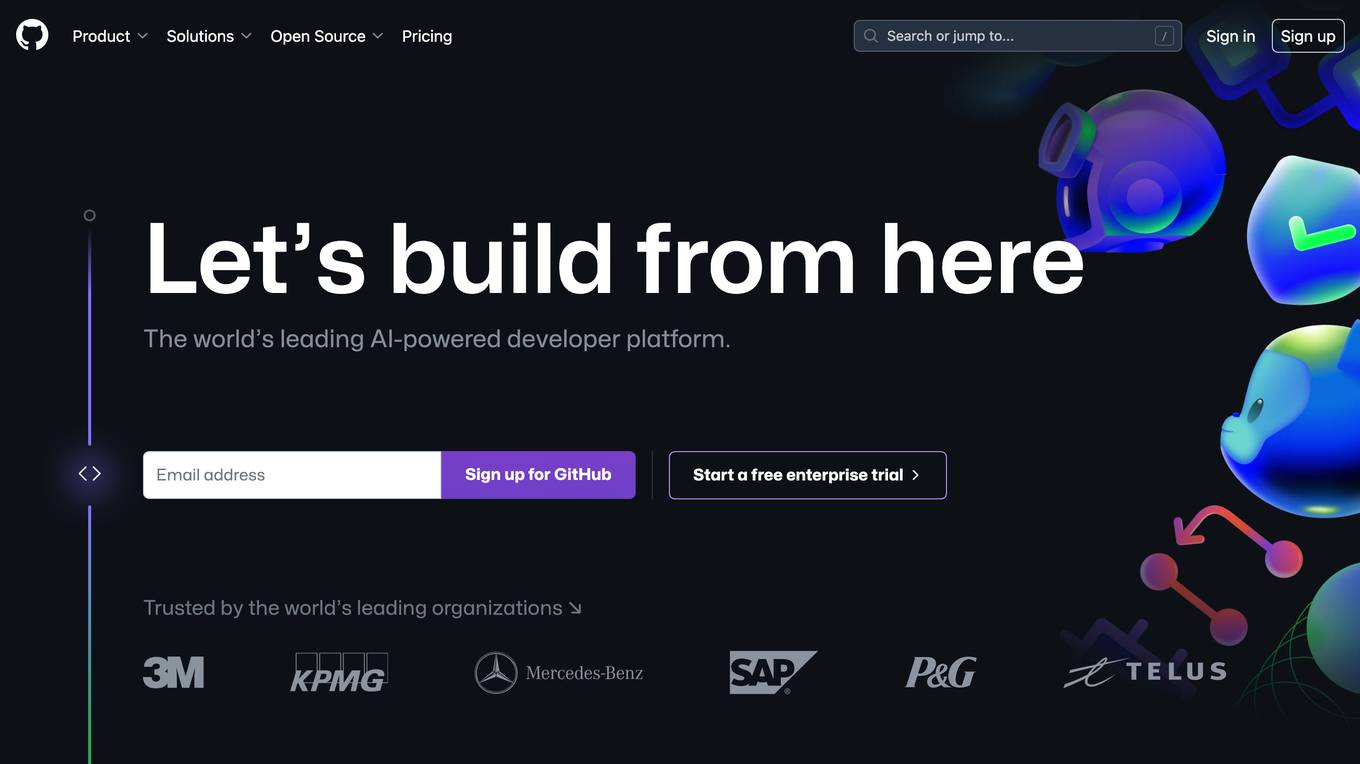
GitHub
GitHub is a collaborative platform that allows users to build and ship software efficiently. GitHub Copilot, an AI-powered tool, helps developers write better code by providing coding assistance, automating workflows, and enhancing security. The platform offers features such as instant dev environments, code review, code search, and collaboration tools. GitHub is widely used by enterprises, small and medium teams, startups, and nonprofits across various industries. It aims to simplify the development process, increase productivity, and improve the overall developer experience.
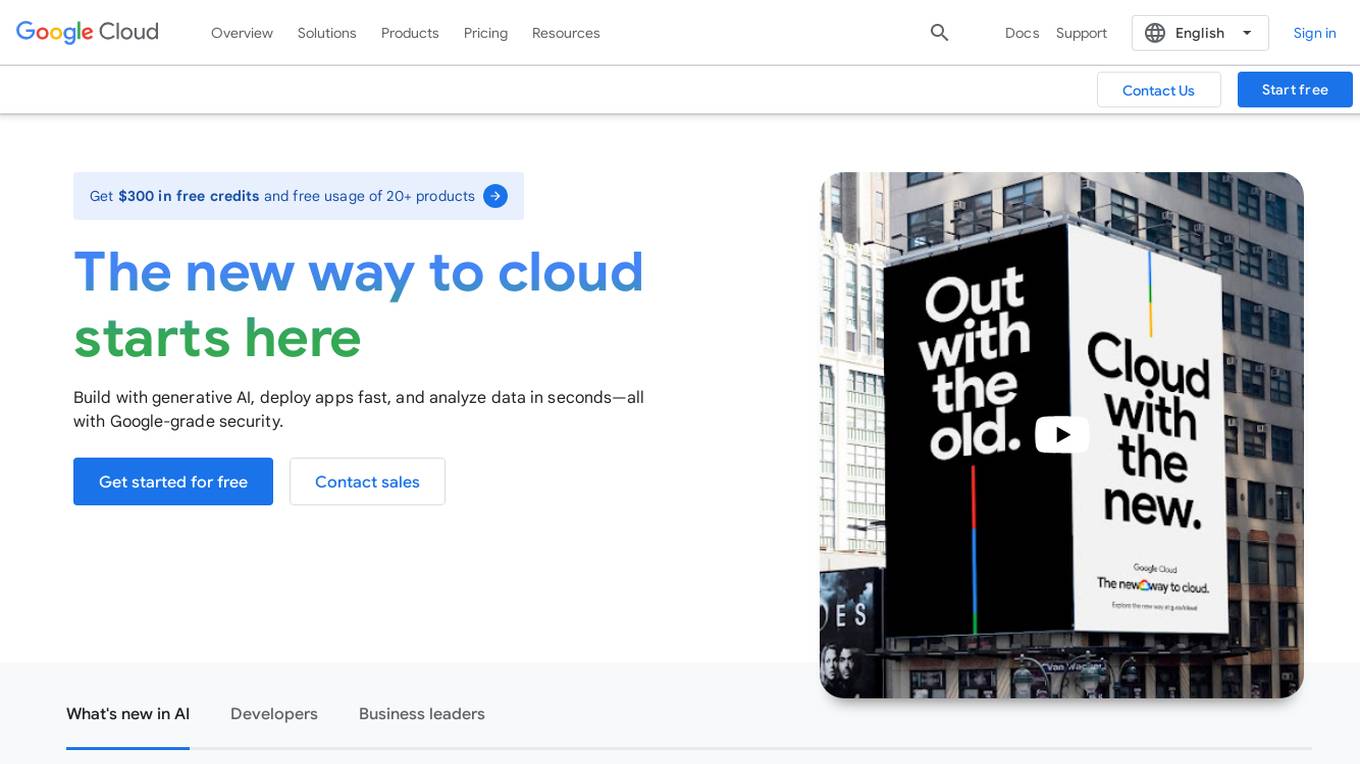
Google Cloud
Google Cloud is a suite of cloud computing services that runs on the same infrastructure as Google. Its services include computing, storage, networking, databases, machine learning, and more. Google Cloud is designed to make it easy for businesses to develop and deploy applications in the cloud. It offers a variety of tools and services to help businesses with everything from building and deploying applications to managing their infrastructure. Google Cloud is also committed to sustainability, and it has a number of programs in place to reduce its environmental impact.
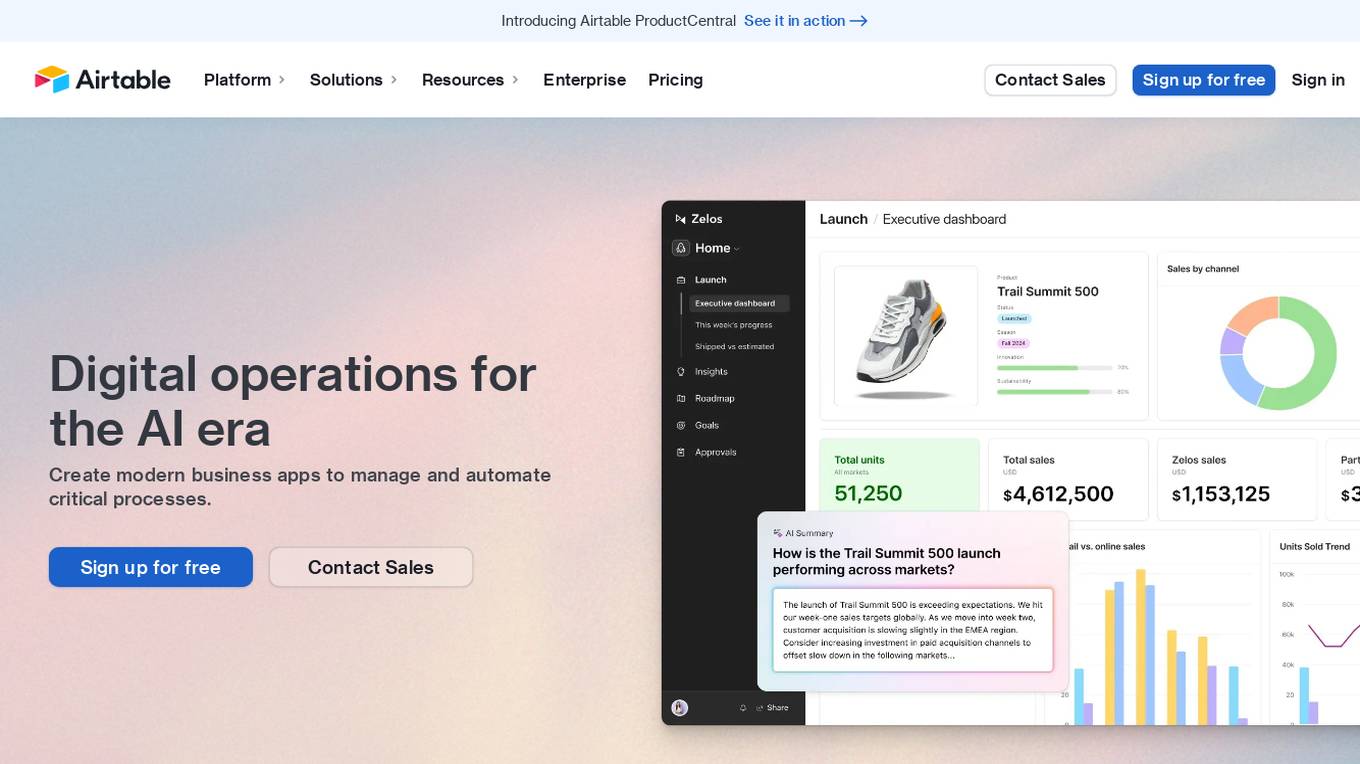
Airtable
Airtable is a next-gen app-building platform that enables teams to create custom business apps without the need for coding. It offers features like AI integration, connected data, automations, interface design, and data visualization. Airtable allows users to manage security, permissions, and data protection at scale. The platform also provides integrations with popular tools like Slack, Google Drive, and Salesforce, along with an extension marketplace for additional templates and apps. Users can streamline workflows, automate processes, and gain insights through reporting and analytics.
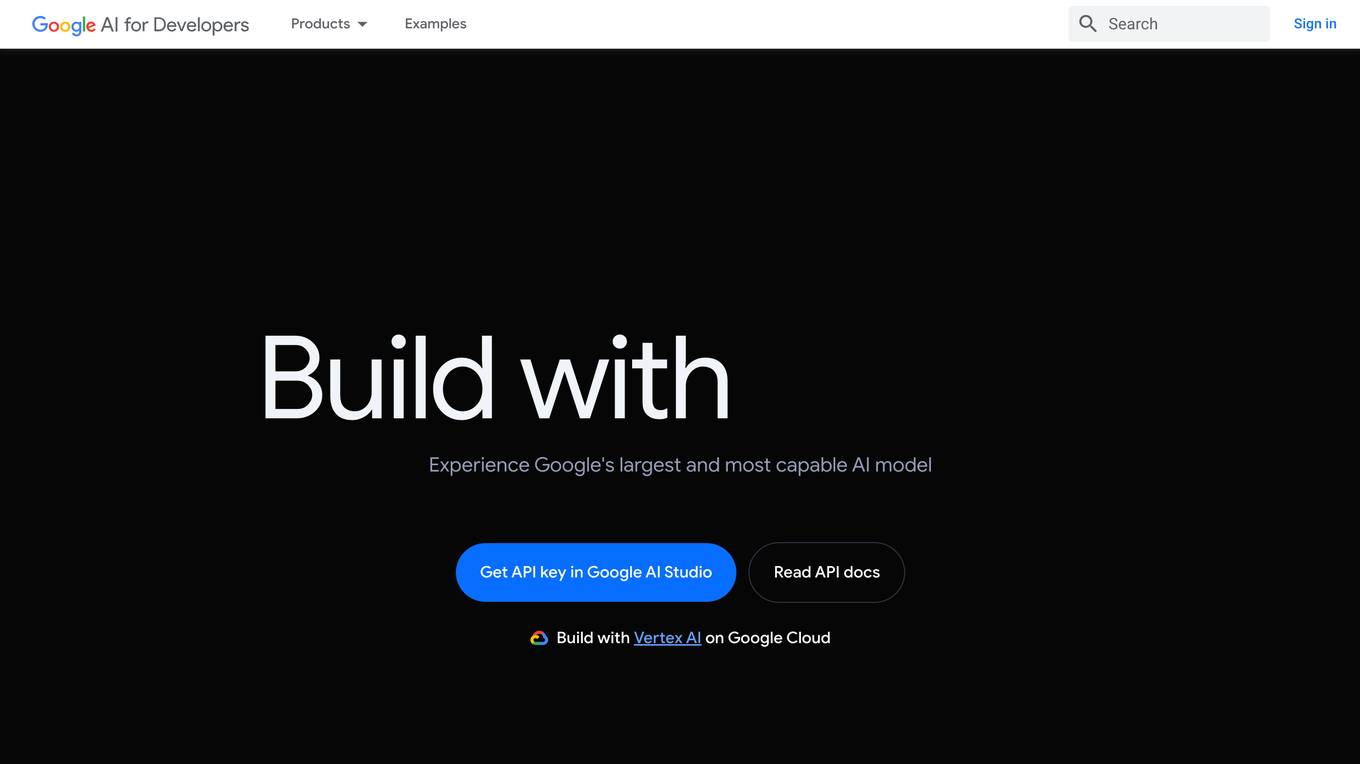
Gemini
Gemini is a large and powerful AI model developed by Google. It is designed to handle a wide variety of text and image reasoning tasks, and it can be used to build a variety of AI-powered applications. Gemini is available in three sizes: Ultra, Pro, and Nano. Ultra is the most capable model, but it is also the most expensive. Pro is the best performing model for a wide variety of tasks, and it is a good value for the price. Nano is the most efficient model, and it is designed for on-device use cases.
0 - Open Source AI Tools
20 - OpenAI Gpts
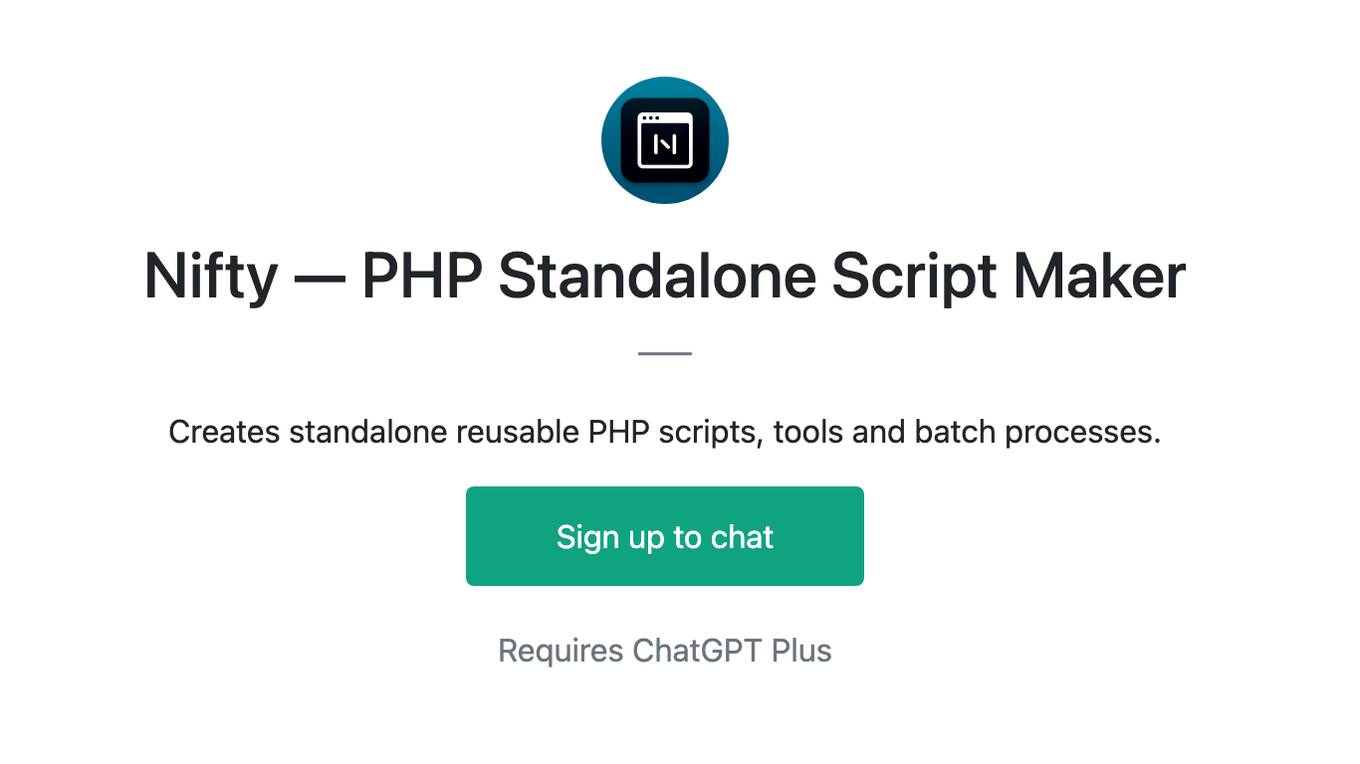
Nifty — PHP Standalone Script Maker
Creates standalone reusable PHP scripts, tools and batch processes.
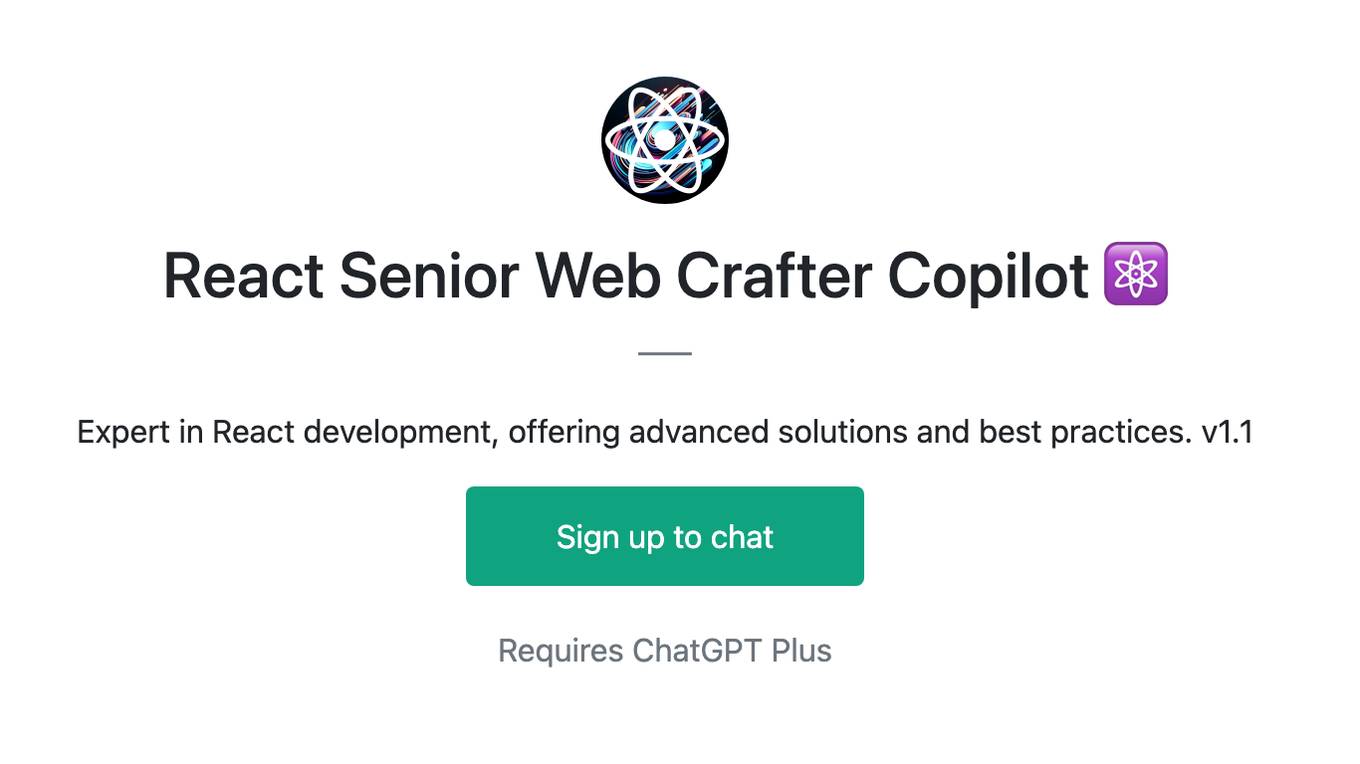
React Senior Web Crafter Copilot ⚛️
Expert in React development, offering advanced solutions and best practices. v1.1
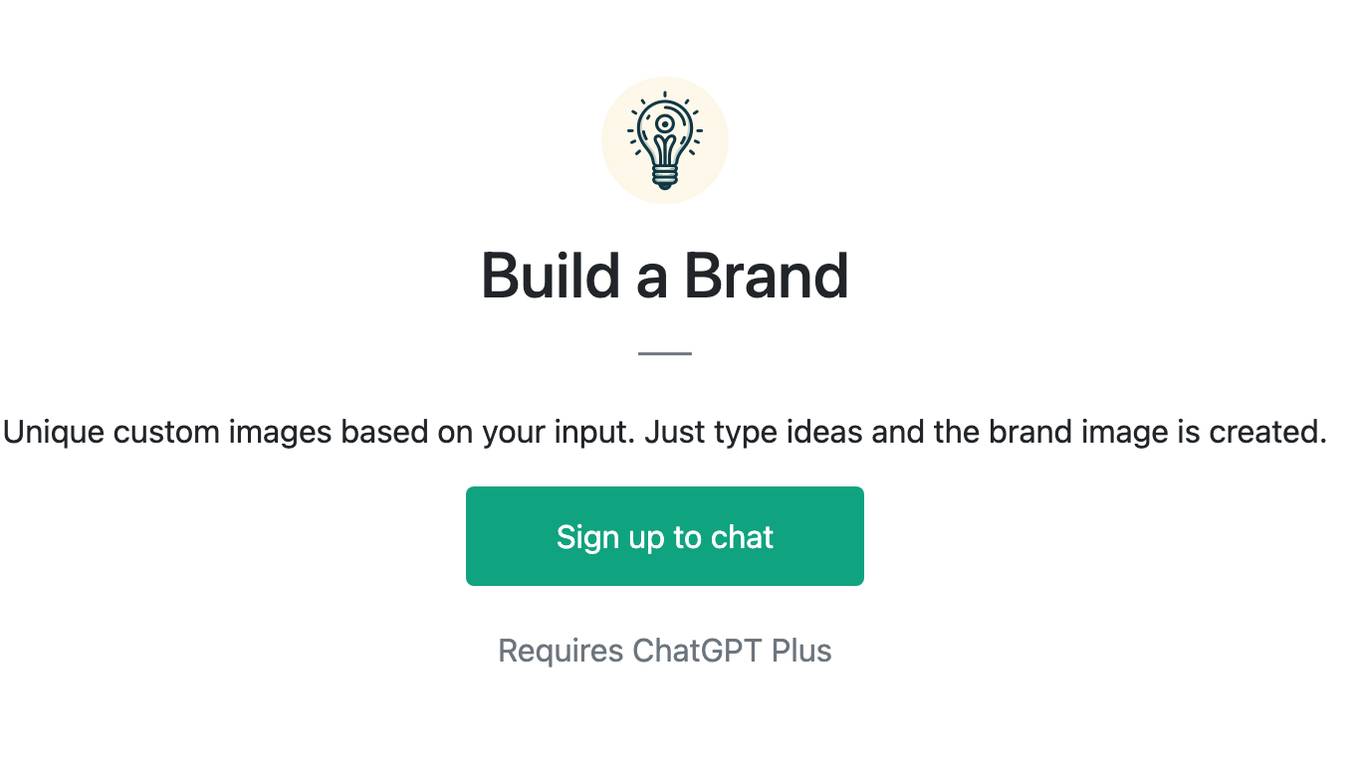
Build a Brand
Unique custom images based on your input. Just type ideas and the brand image is created.
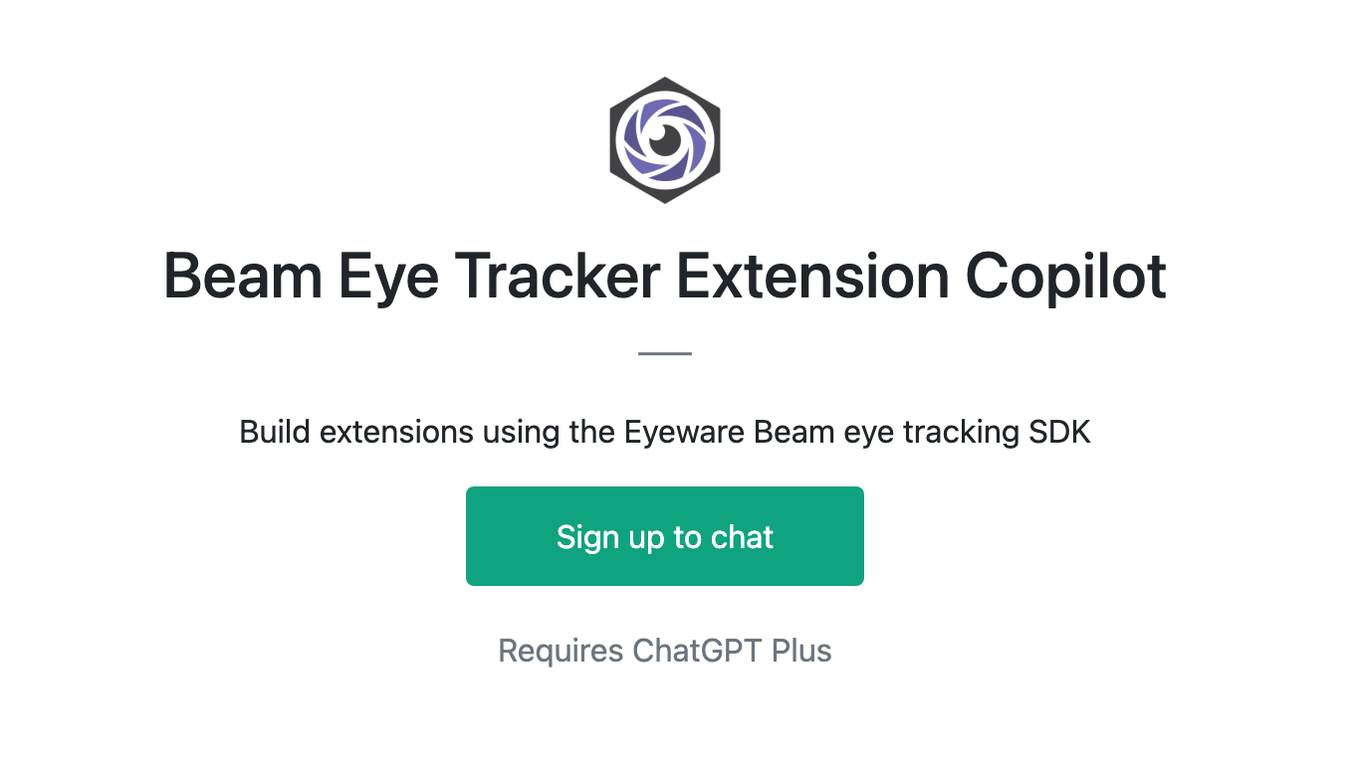
Beam Eye Tracker Extension Copilot
Build extensions using the Eyeware Beam eye tracking SDK

Business Model Canvas Strategist
Business Model Canvas Creator - Build and evaluate your business model

League Champion Builder GPT
Build your own League of Legends Style Champion with Abilities, Back Story and Splash Art
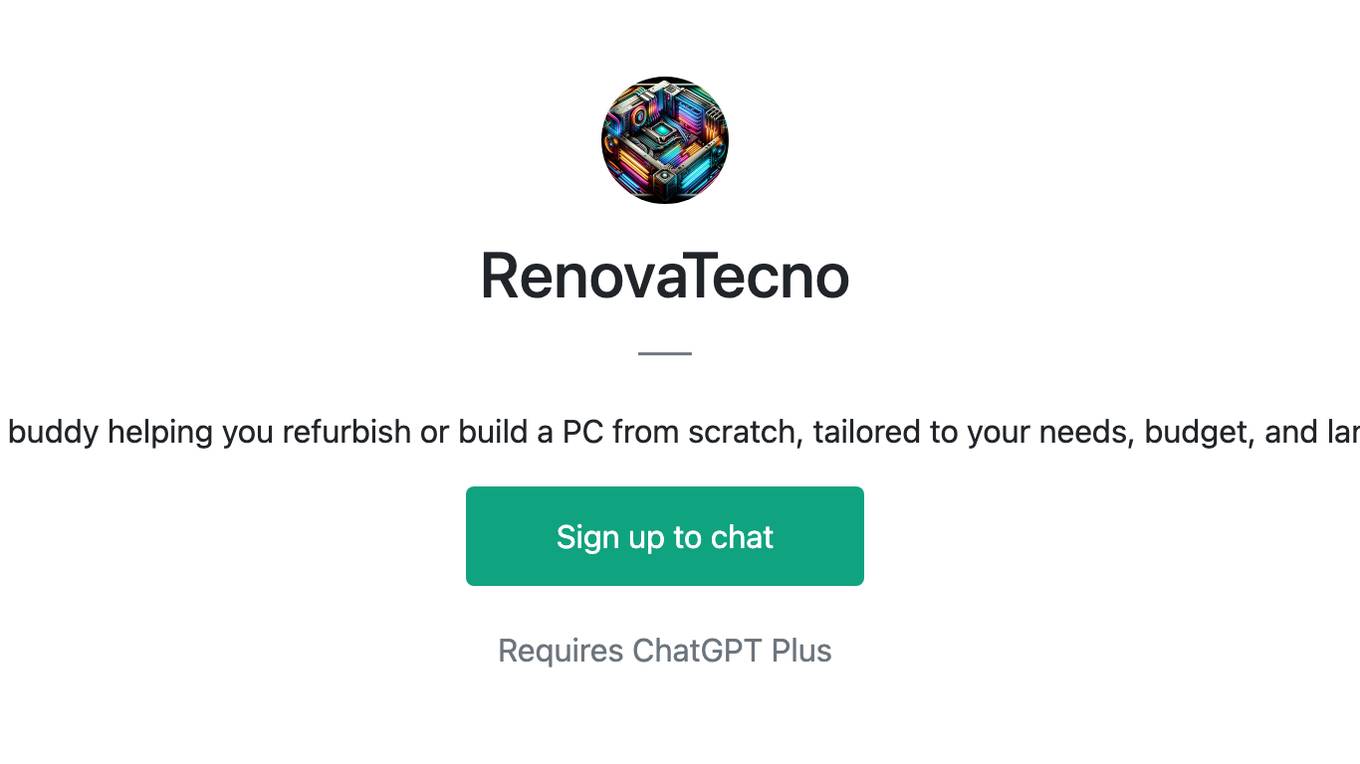
RenovaTecno
Your tech buddy helping you refurbish or build a PC from scratch, tailored to your needs, budget, and language.
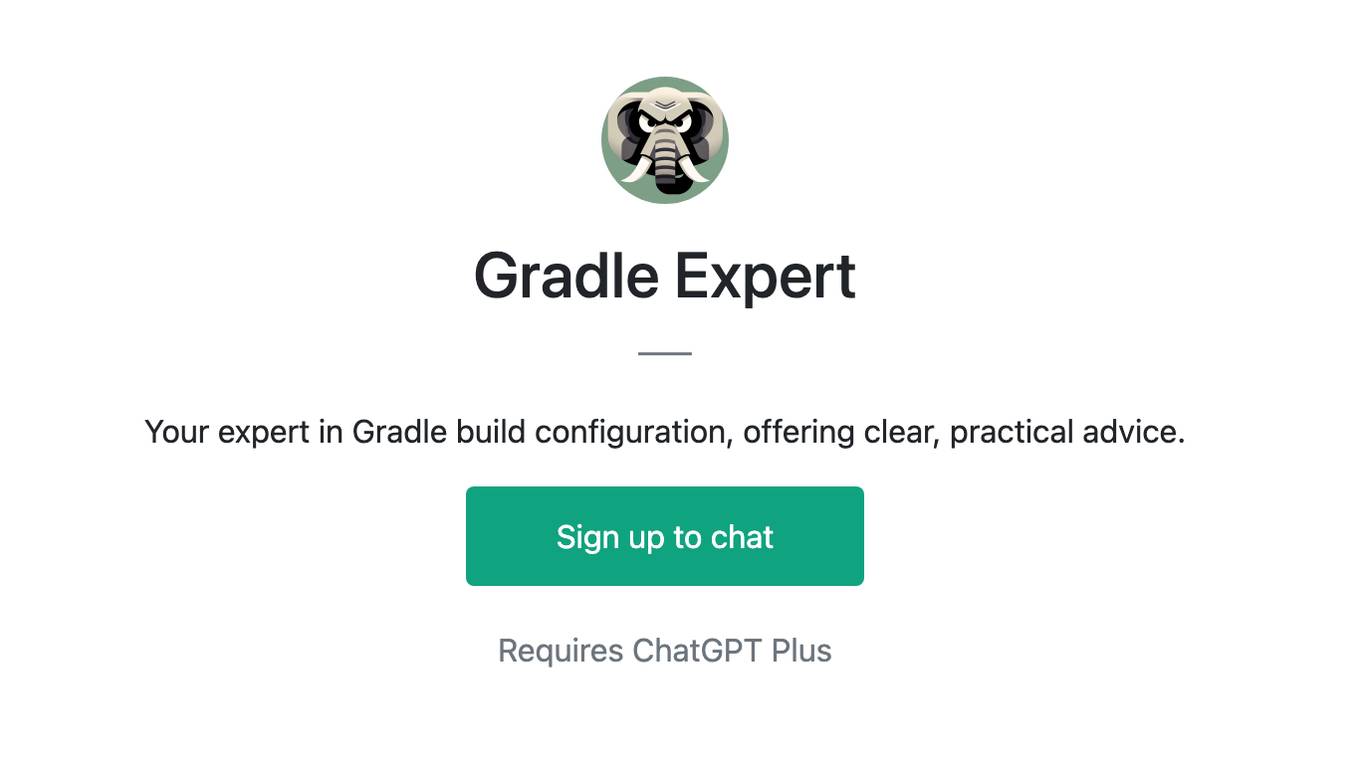
Gradle Expert
Your expert in Gradle build configuration, offering clear, practical advice.
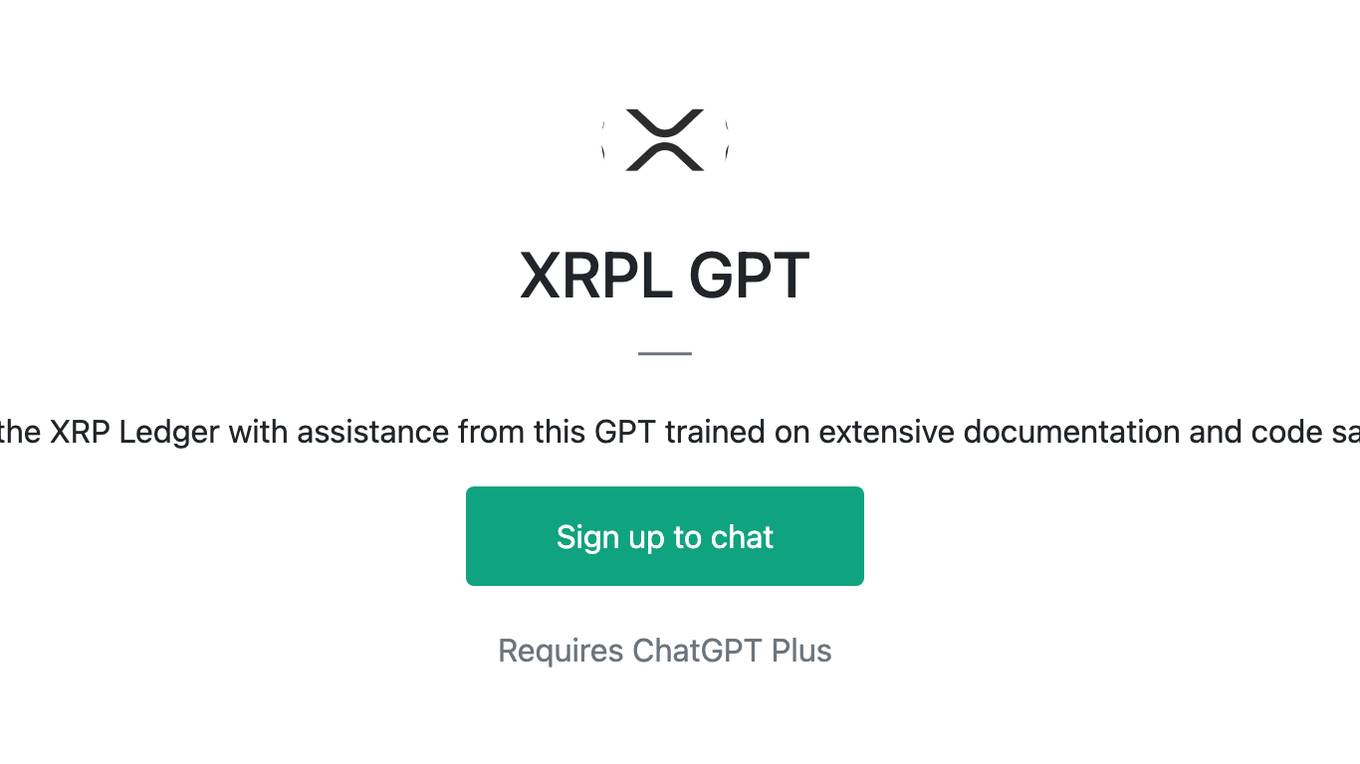
XRPL GPT
Build on the XRP Ledger with assistance from this GPT trained on extensive documentation and code samples.
